South Vietnam is home to some beautiful picturesque towns. I would have expected them to have suffered some damage during the Vietnam war but two of them at least; Dalat in the hills and Hoi An on the coast, were, by mutual agreement of the combatants, left undamaged. And, at the end of the war they were occupied by the North Vietnamese almost without a shot being fired.
Our first destination, 190 miles north of Saigon, is the abidingly pretty old French hill station of Dalat which is 1,500 metres above sea level and surrounded by pine tree covered hills with lakes and mountains in the distance. The air is cool and a little rarified by the altitude. There’s a large ornamental lake in the town, a narrow gauge railway and a 2km cable car from Robin Hill to Truc Lam Pagoda and Tuyen Lake. From the cable car we see hundreds of greenhouses growing, amongst other things, avocados and strawberries. The local Dalat wine, especially the red, is really excellent and inexpensive. Dalat is not the type of place I expect to encounter in Vietnam – it’s more like a European Spa town well provisioned with four star hotels.
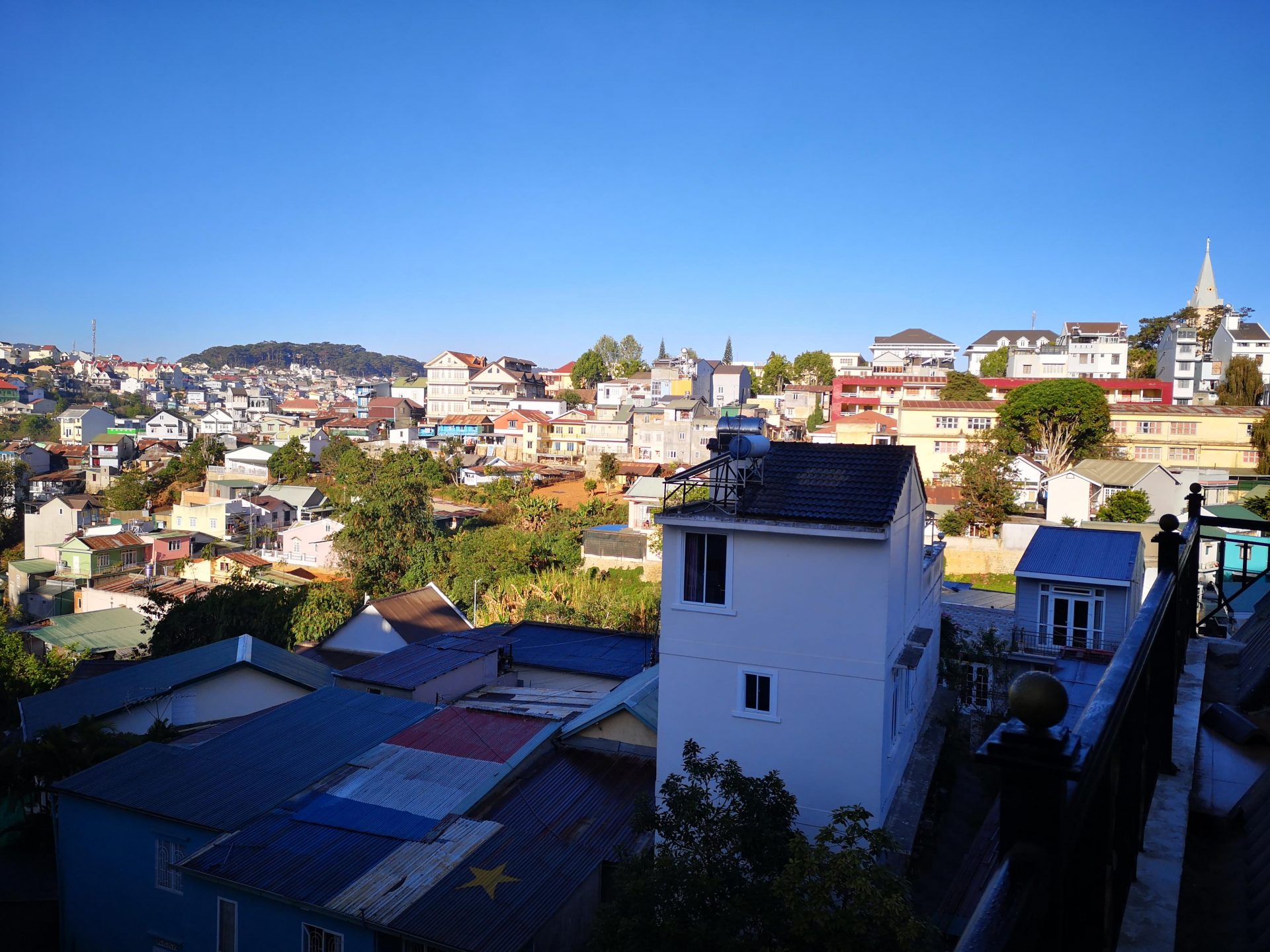
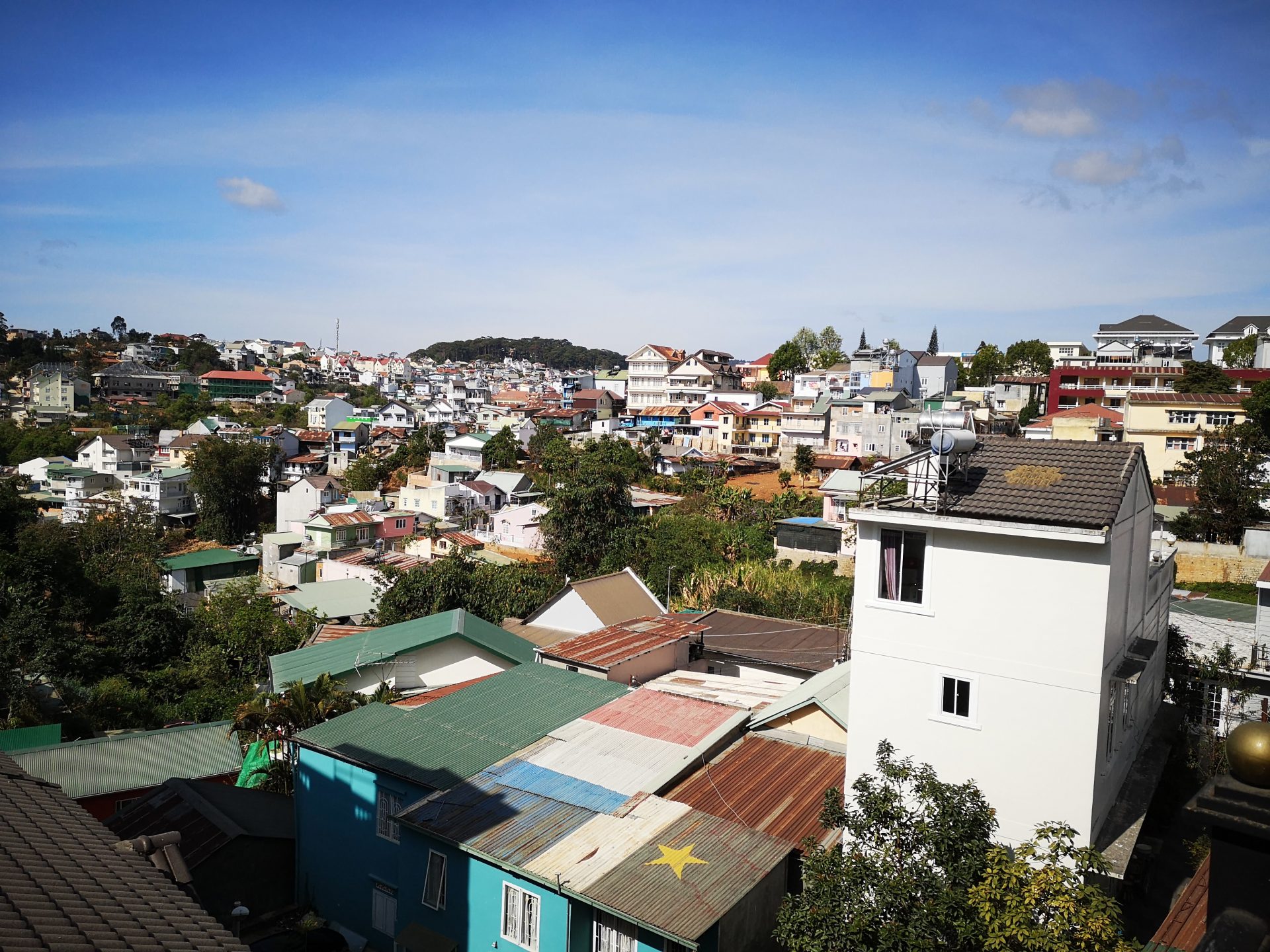
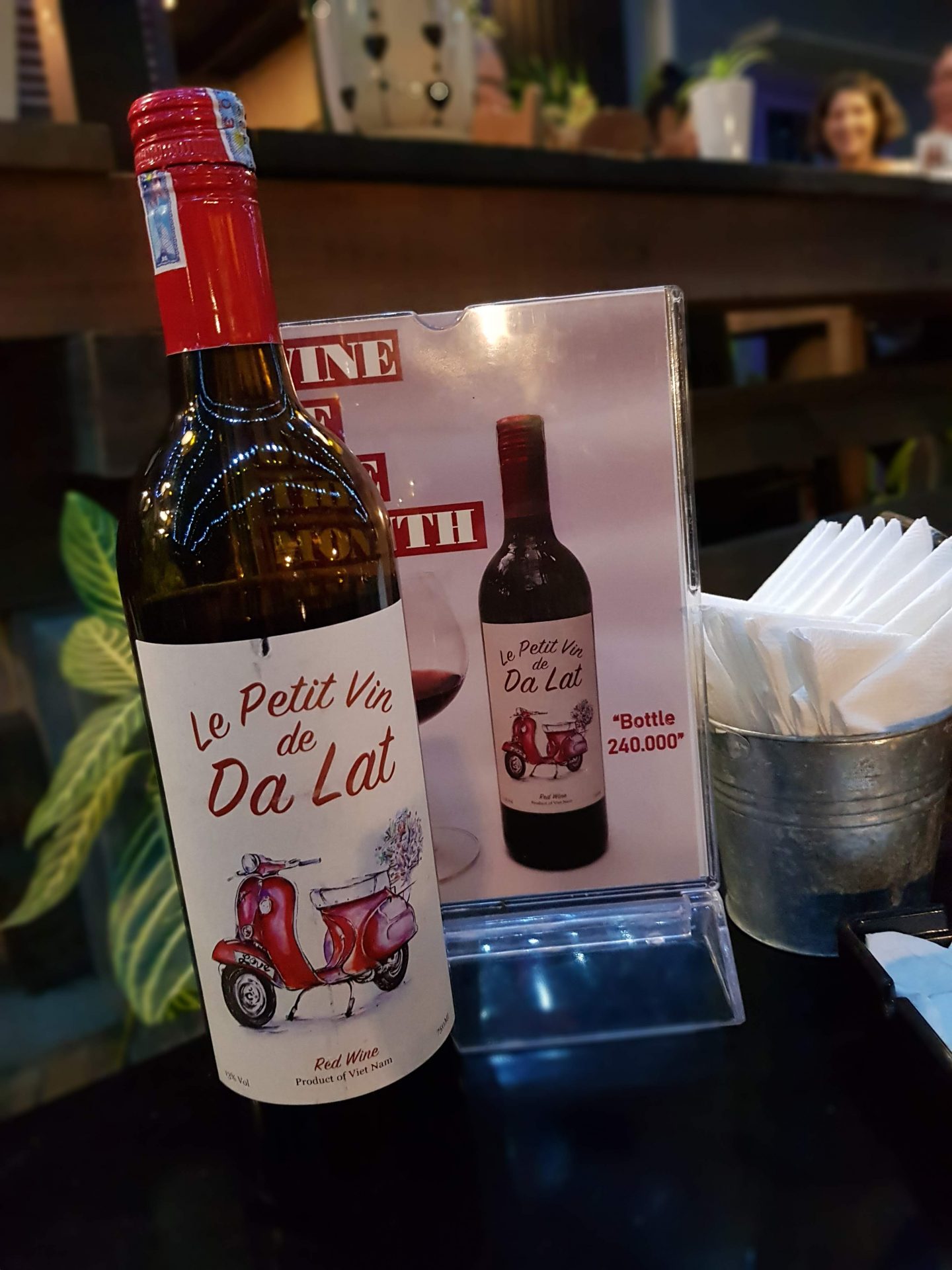
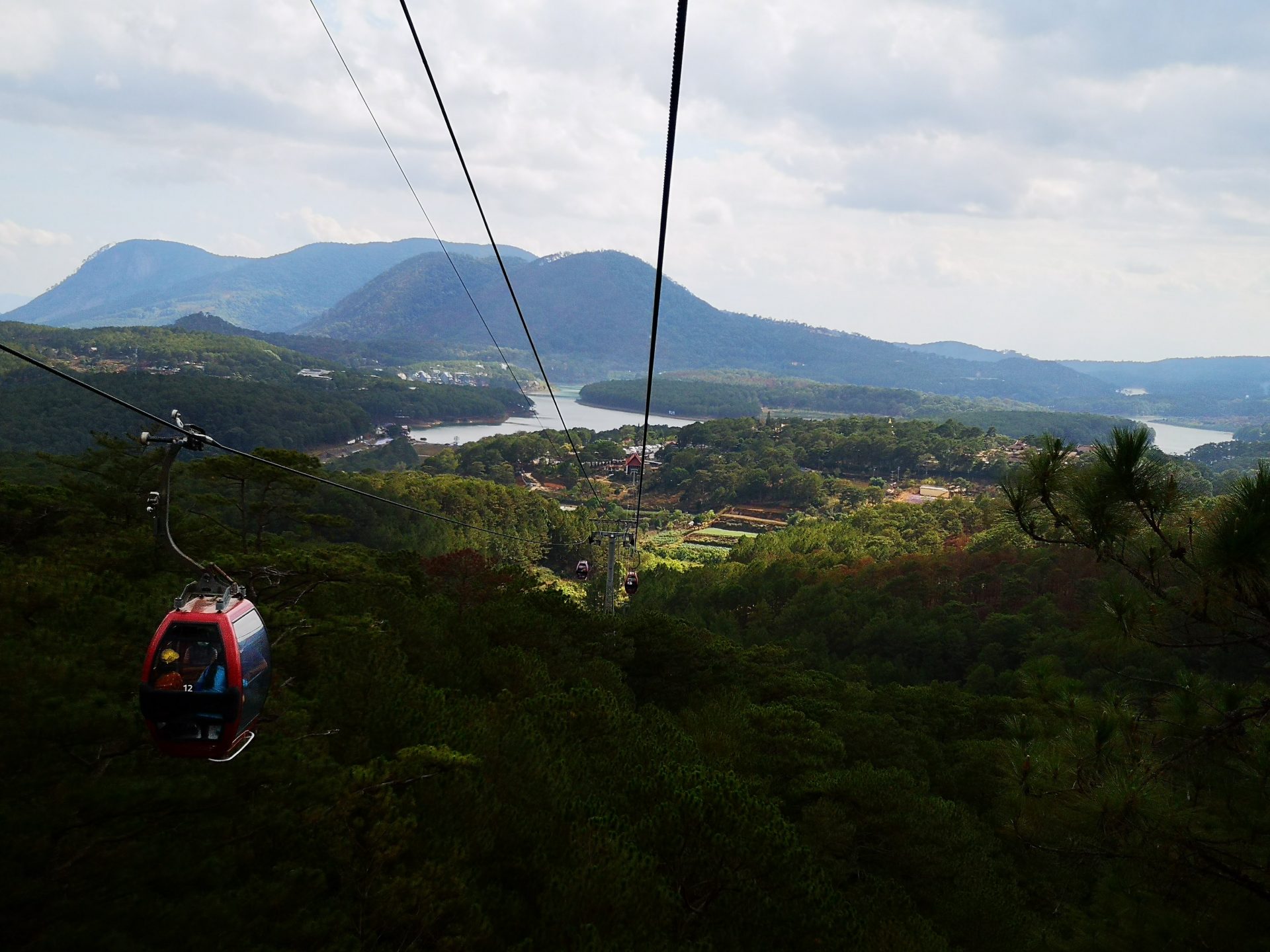
We, however, are staying at a £9 a night hotel, the Oriana, and it’s brilliant; clean, comfortable, with a roof terrace, where we drink wine of an evening, overlooking the Dalat rooftops. Breakfast ingredients are supplied – fresh eggs and the best bread rolls from the bakery next door. And, supremely important for Jo, there’s a hair dryer. We’re finding some excellent and very good value accommodation in Vietnam. Good job too, as after nearly five months on the road funds are being challenged.
It’s three months since Jo contracted the chikungunya virus and, despite some bothersome symptoms, she’s recovered, so over the last couple of weeks she’s been getting back into running. This morning she does an 8km run around Xuan Huong lake and returns to our hotel, excited by the discovery that there’s a bicycle race in town. It’s the International Biwase Cup Women’s Cycling Tour of Vietnam, the biggest women’s cycling race in the country with ten stages. Today is stage 5, a short 50km race, ten times around the lake.
We’re down at the start line, just as the peloton completes a warm up circuit. The conditions are perfect for cycling here in the hills on a beautiful day. But the race has been poorly publicised and, except for a cluster of red and blue flag waving supporters on the straight before the finish line, there are few spectators. I approach one of the fans and ask who they’re supporting. Taiwan, says a friendly enthusiastic flag waver. As the race approaches the end of the first lap they wave their national flags aloft, cheer and chant “Go Taiwan” in Taiwanese. By the end of the second lap, I’ve been given a big flag and I’m screaming “Go Taiwan” in English. A Thai cyclist wins the stage in a bunch sprint and she gives me a gracious wai greeting when I congratulate her before the award ceremony.
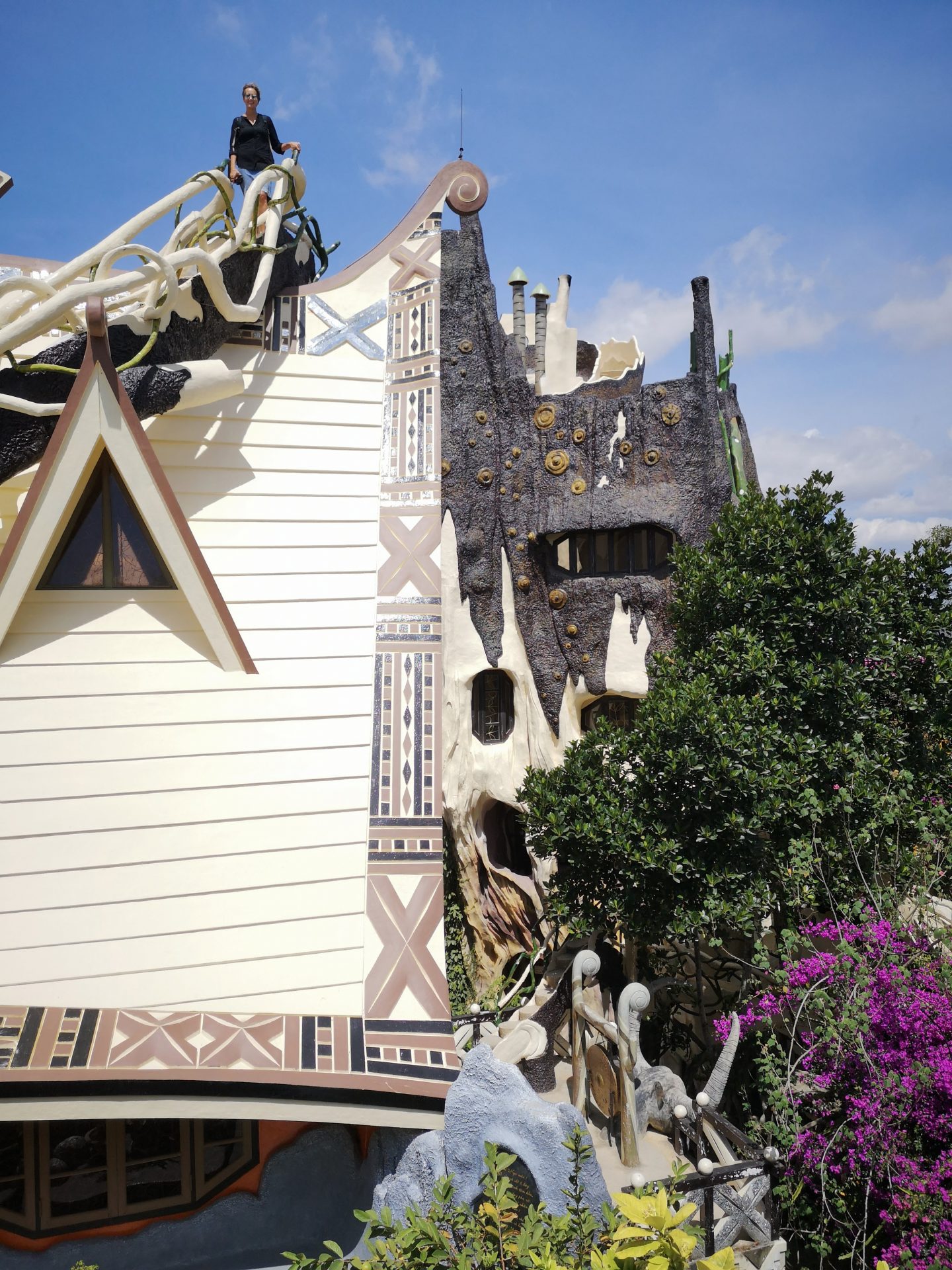
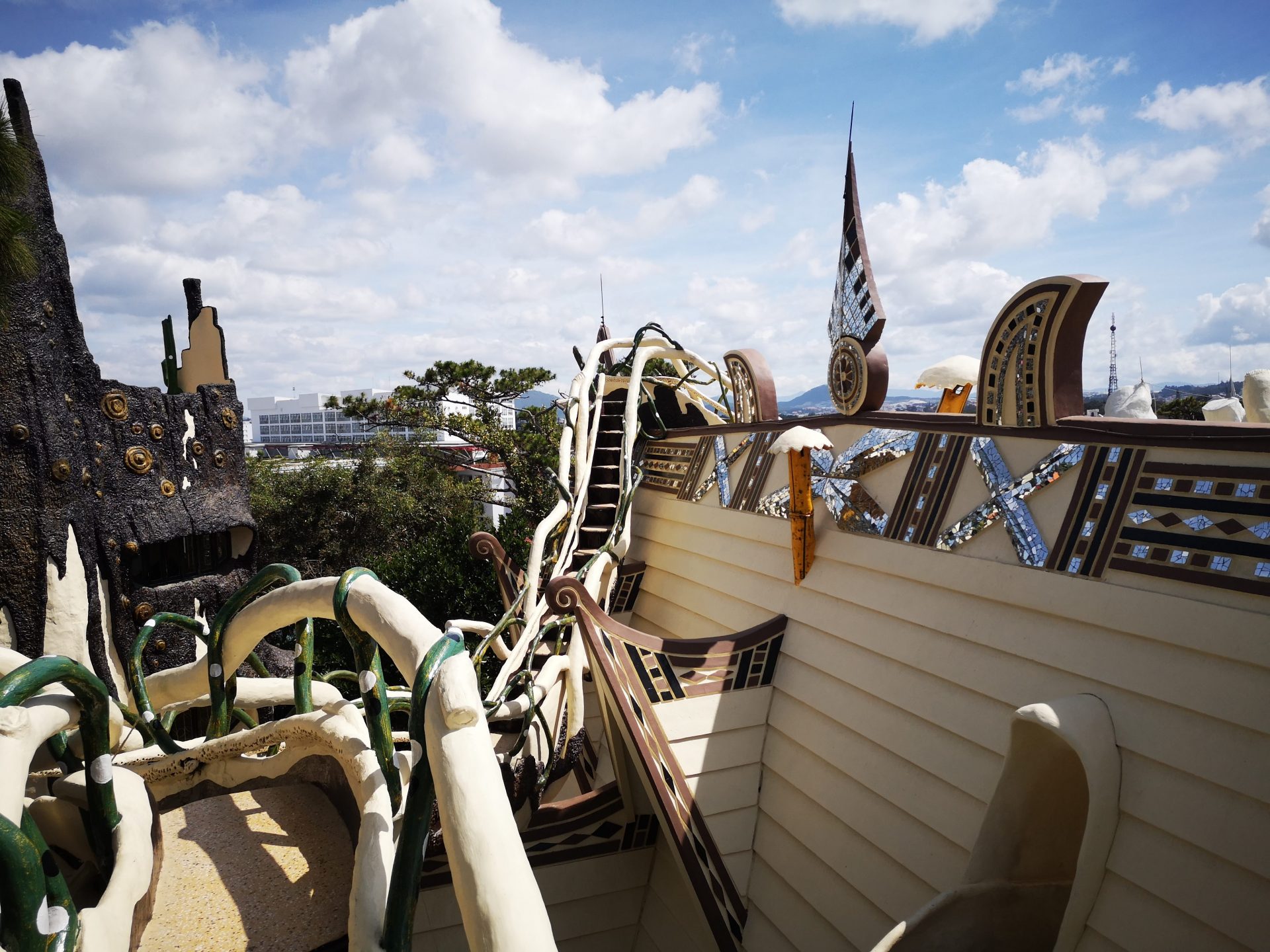
We visit the crazy house designed and built by a talented and eccentric Vietnamese architect Đặng Việt Nga, with influences of Gaudi, Dali, Walt Disney and possibly LSD. We walk to the old French railway station and have a beer in a scruffy café inside a French railway carriage, we ride the cable car, and eat fresh strawberries and yogurt. We spend four very pleasant days in Dalat before we take the five hour bus ride up the coast to Nha Trang.
Nha Trang is Vietnam’s Vladivostok. Never before have I seen a town so exclusively patronised by a single nationality. It’s not overcrowded but every voice is Russian. They’re a cheerful and unassuming enough bunch, enjoying a brief respite from the bleak Russian winter. They are very white and lots of the women are sturdy looking proletarians. There’s hardly a bar in town, just a few on the fine, clean sandy beach. Jo has another great Indochine haircut and we eat lots of fresh seafood. But it’s no place to linger when the delights of the old town of Hoi An are another overnight bus ride north along the coast.
Hoi An is a delight. The only complaint ever levelled at it, is that it’s small and overwhelmed by tourist groups. But of course the COVID-19 effect is in full swing and the town is deserted. Hoi An is an ancient river fronted port town of charming teak houses of a Sino-Japanese style. Golden mustard is the favoured colour scheme. The narrow streets and riverfront are adorned with multicoloured lanterns and flags. Vivaldi is quietly played through street loudspeakers and the air is rich with the sweet smells of Vietnamese food and incense. There are restaurants to suit every taste and budget and there are hundreds of tailors and dressmakers where you can have a suit or dress made to measure in less than 24 hours. And to top it all there’s a great beach a few kilometres away.
For the first time in 25 years Jo has a dress made to measure. It’s burgundy, in a vintage style with a trumpet flared hemline. She looks fabulous in it, I buy it for her. After the final fitting she suddenly realises that she doesn’t have any shoes or handbag to go with it – forgetful eh! A problem sorted with a pair of made to measure leather sandals and matching handbag. We stay in Hoi An for five days. We visit the old merchant houses including the ornate covered Japanese bridge. We eat and drink splendidly and cycle to the beach a couple of times, and across the bridge to Cam Nam island where we visit Randy’s second-hand bookstore.
Big, American, laconic, mature in years, expat Randy is reclining with a book inside his dimly lit air conditioned house in a quiet lane on Cam Nam. Paperbacks occupy every room – English editions are upstairs. He has a Chick Lit section for which he has been recently lambasted on TripAdvisor (not PC, not conformist, sexist, not woke). As it’s International Women’s Day today I told him I’d give his excellent Chick Lit section a plug. I exchange a few books for a copy of River of Time by John Swain, his moving memoir of the conflict in Cambodia and Vietnam, and Kingdom of Fear, Selected Writings by Hunter S. Thompson. We have a good chat with Randy about bookselling “Can’t get books in Vietnam man, they’re communists”.
In Hoi An, the circumstances surrounding the Coronavirus epidemic suddenly change. There are only 40 cases in the country but the most recently infected have been Europeans (ironically they were infected by a young globetrotting Vietnamese socialite woman on a flight from London to Hanoi). The Vietnamese are now being ultra cautious. The country has a dismal health care infrastructure and will implement rigorous precautionary measures to avoid a whirlwind contagion and overwhelming epidemic. The noose is tightening. We booked to spend a few days on the isolated Cham islands but the ferries to the islands have been cancelled. Our hotel in Hoi An is closing its doors today as we leave, as are many others, and all of the tourist attractions in town are closing.
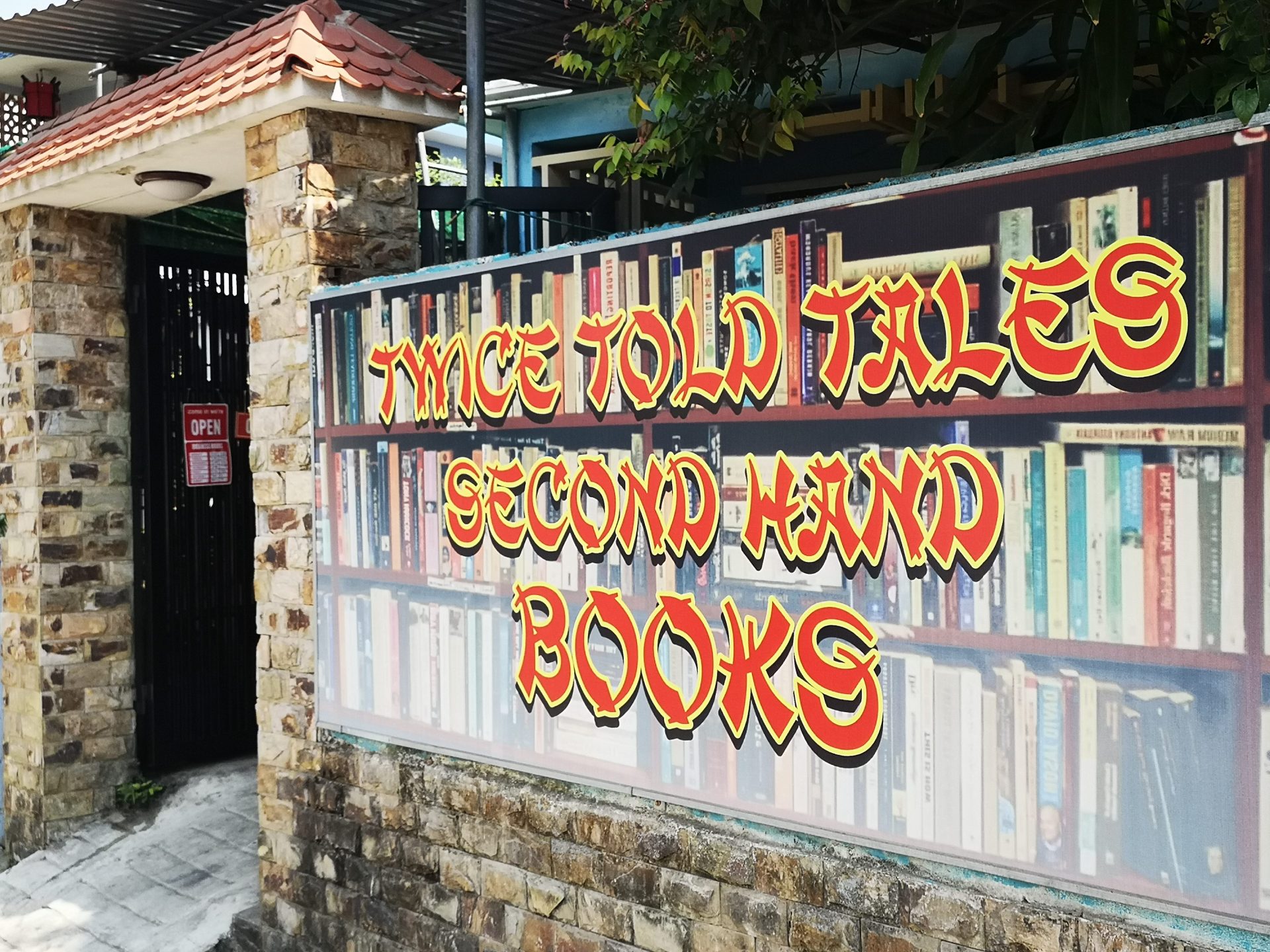
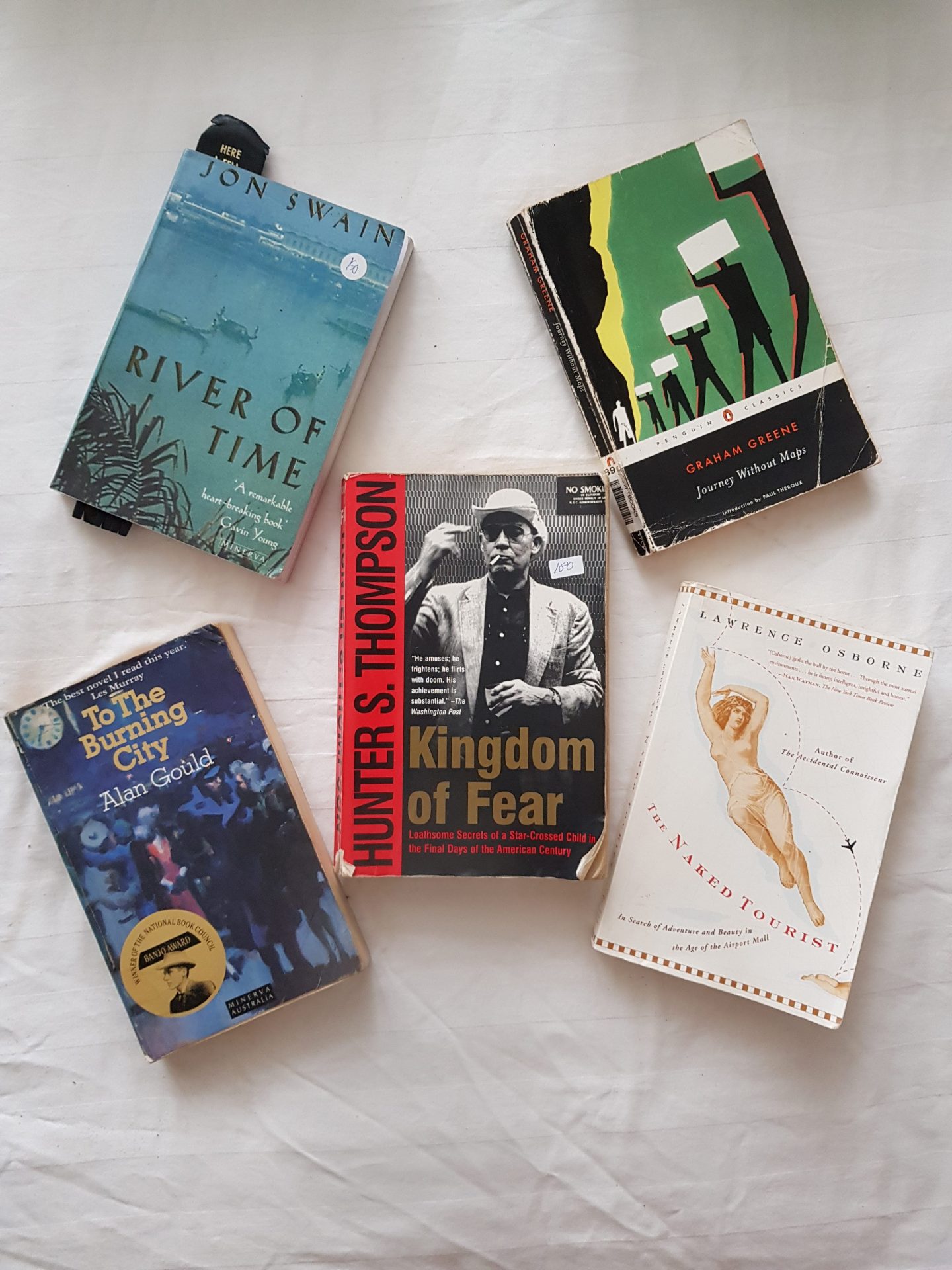
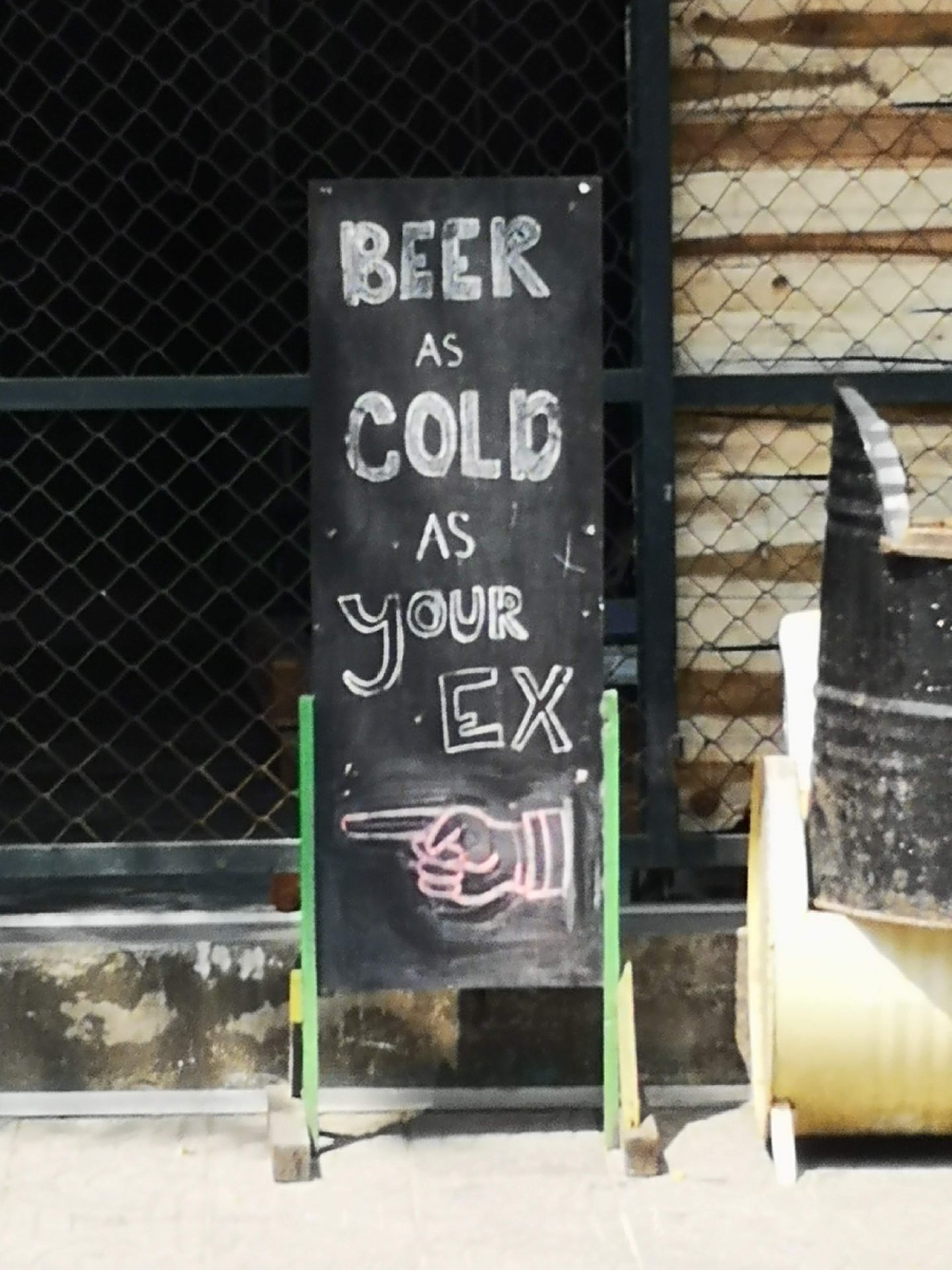
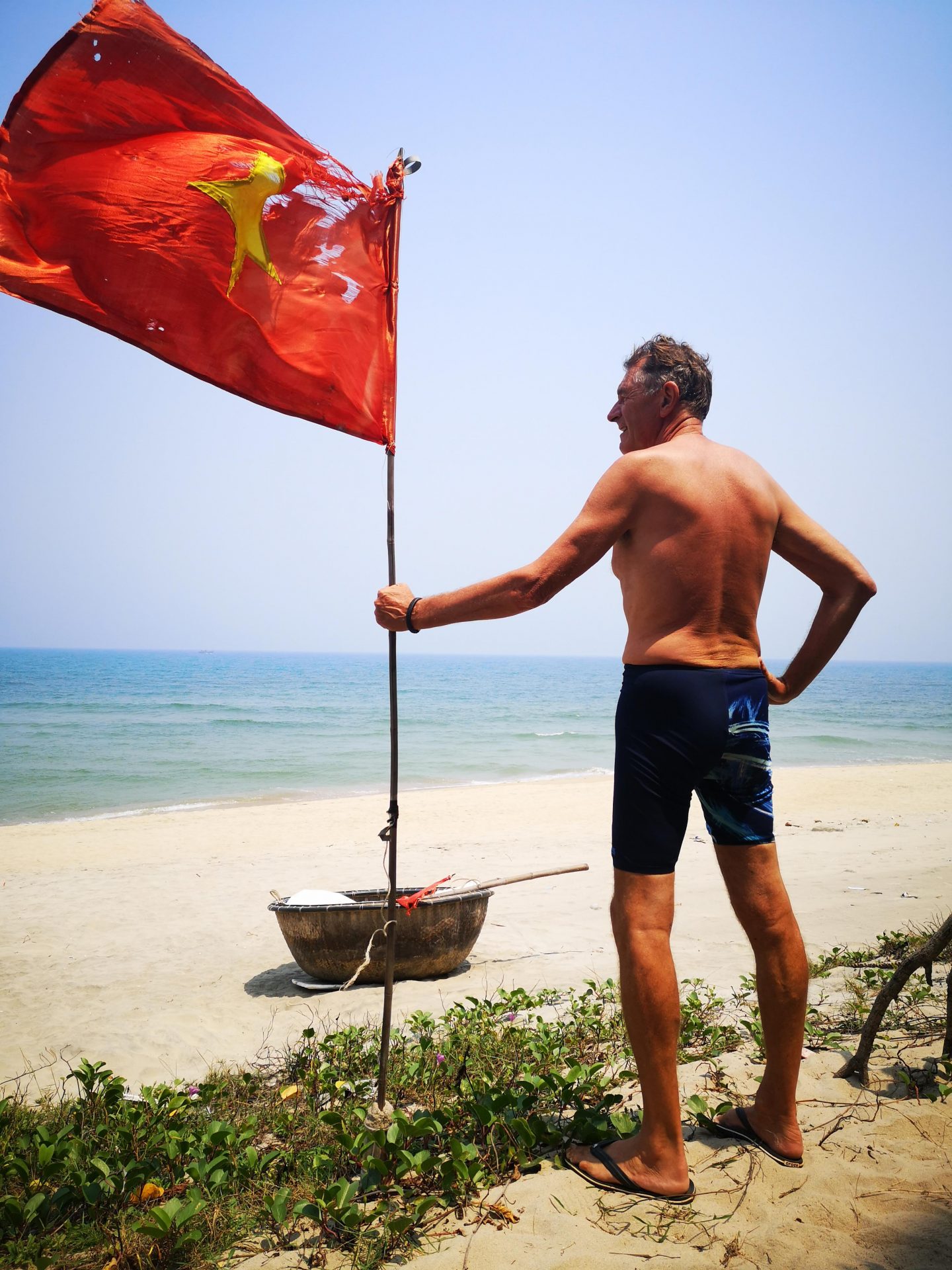
We take the short bus ride to the coastal city of Danang to discover that our hotel is closed. We find another and they tell us that they will be closing in three days time, the 14th March. To be exposed to anybody with the infection, or to be in a location after an infected person has been there will mean 14 days quarantine. We must account for our recent movements at every hotel registration. The local Vietnamese are now irrationally, but perhaps understandably, scared of being infected by Europeans. People flee from us on buses or shoo us away, or they pull T-shirts over their faces as we pass. The reactions of some of them verges on hostility, which makes me angry and Jo very uncomfortable. Our plans to visit Hanoi and the north look thwarted. Hanoi, Halong Bay, Sapa, Minh Binh, all northern Vietnamese destinations are ‘closed’ and our once favourite bus company, Futa, is presently refusing to take foreign passengers. It’s a dismal outlook.
Additionally, we have a flight booked from Hanoi to Bangkok on 27th March, two weeks from now. But there is a possibility that Thailand may restrict the entry of foreigners, including Brits, on 17th March. Our flight home is from Bangkok. Can we get there? Who knows. Perhaps we shall need to get to Bangkok sooner. The situation changes daily (today the US Government banned the entry of almost all EU citizens into the USA).
Meantime, we try to forget about these problems and enjoy a visit to the Marble mountains just south of Danang, and an afternoon on My Khe beach, a long curve of soft sandy beach abutting downtown Danang, with a decent surf. This is the famous China Beach used by the US military as a popular R&R resort during the Vietnam war. I am reminded of that short scene in the film Apocalypse Now where lieutenant Colonel Kilgore, brilliantly played by Robert Duvall declares that “Charlie don’t surf”. To Jo’s delight there are also several interesting bridges spanning the Han River, one of which, the Dragon Bridge is in the form of a stylised dragon. It’s illuminated at night, the colours changing from gold to green and blue. Like all good dragons it breathes fire every Saturday and Sunday night at 9pm – a spectacle we’ll unfortunately miss
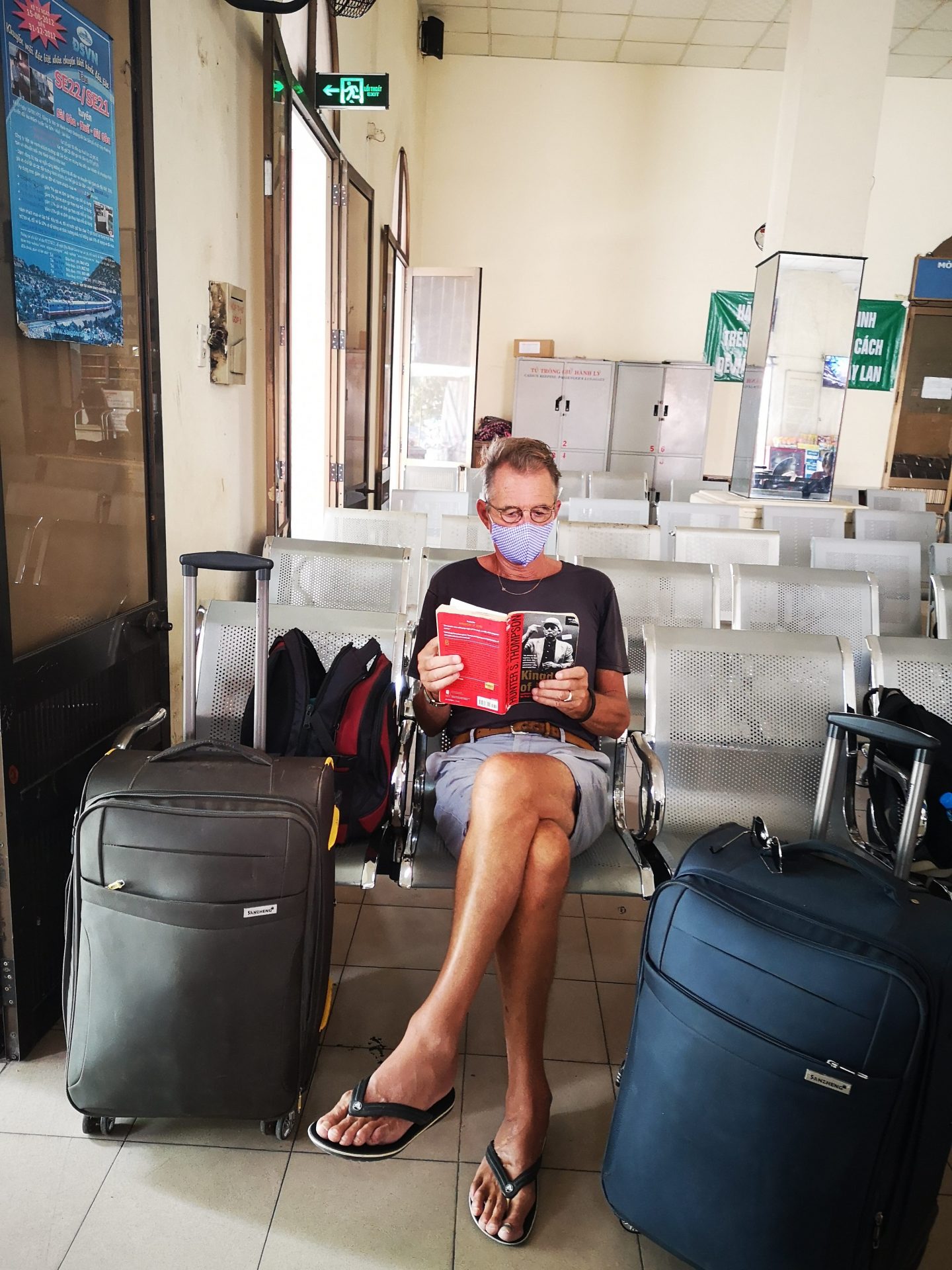
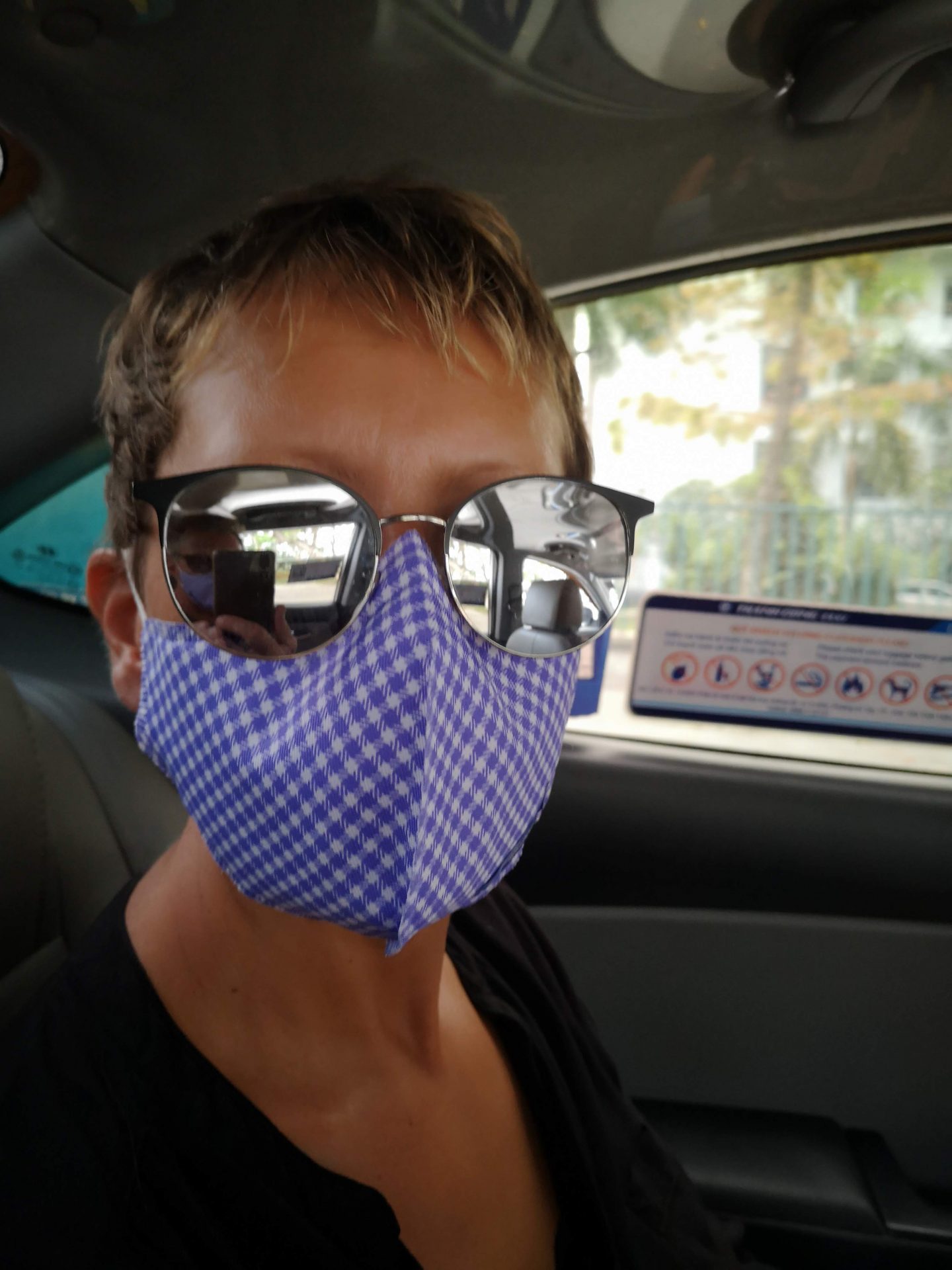
For the first time in Southeast Asia we are wearing facemasks. They afford no protection from infection for the wearer but they’ll allay the anxiety of the locals. We’re having a breakfast of fried egg baguettes and strong sweet Vietnamese coffee at a café terrace outside Danang railway station before we board the train for the winding scenic coastal chug up the coast to the ancient city of Hue. The café owner is called Hai. He’s not reticent about getting up close and friendly, even offering a handshake. He does his utmost to sell us a motorbike tour around Hue. We have to explain the uncertainty of our situation and he realises he can’t sell us anything. He smiles, gives us his card and wishes us well.
The long diesel train winds along the coast through hilly jungles, over rivers and along expanses of rice paddies. It’s very scenic but I miss most of it as I’m busy writing this! After two and a half hours we arrive at the ancient city of Hue, whose citadel was home to the Emperors of Vietnam before the abolition of the monarchy in 1945. Jo has found us another splendid little hotel across the river from the centre. There’s a good sized salt water pool, of which there are many in Vietnam, so much nicer than chlorinated water. Our room has a small balcony overlooking the river and the hotel provides decent bikes – the best we’ve ridden in Asia – for free.
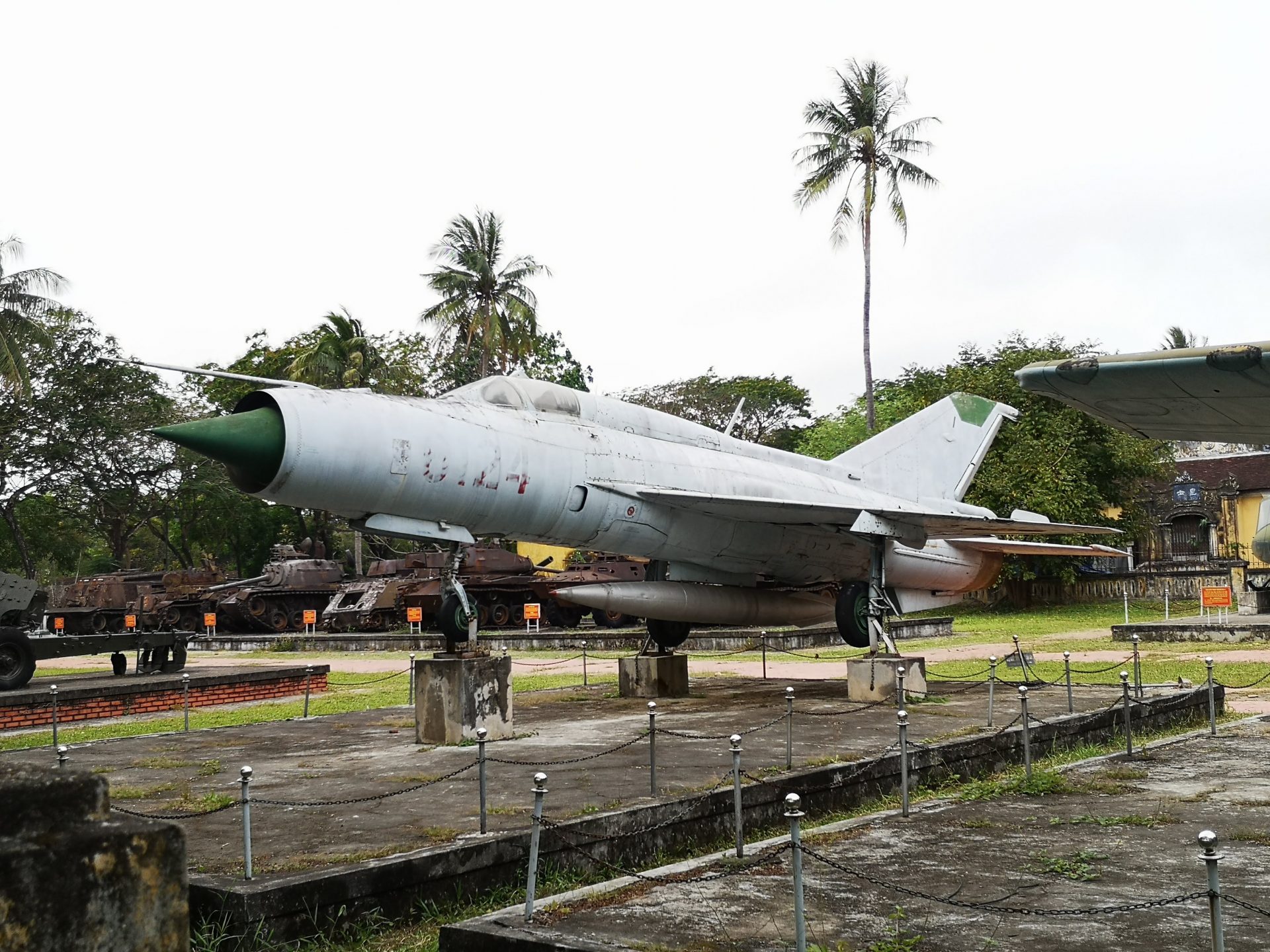
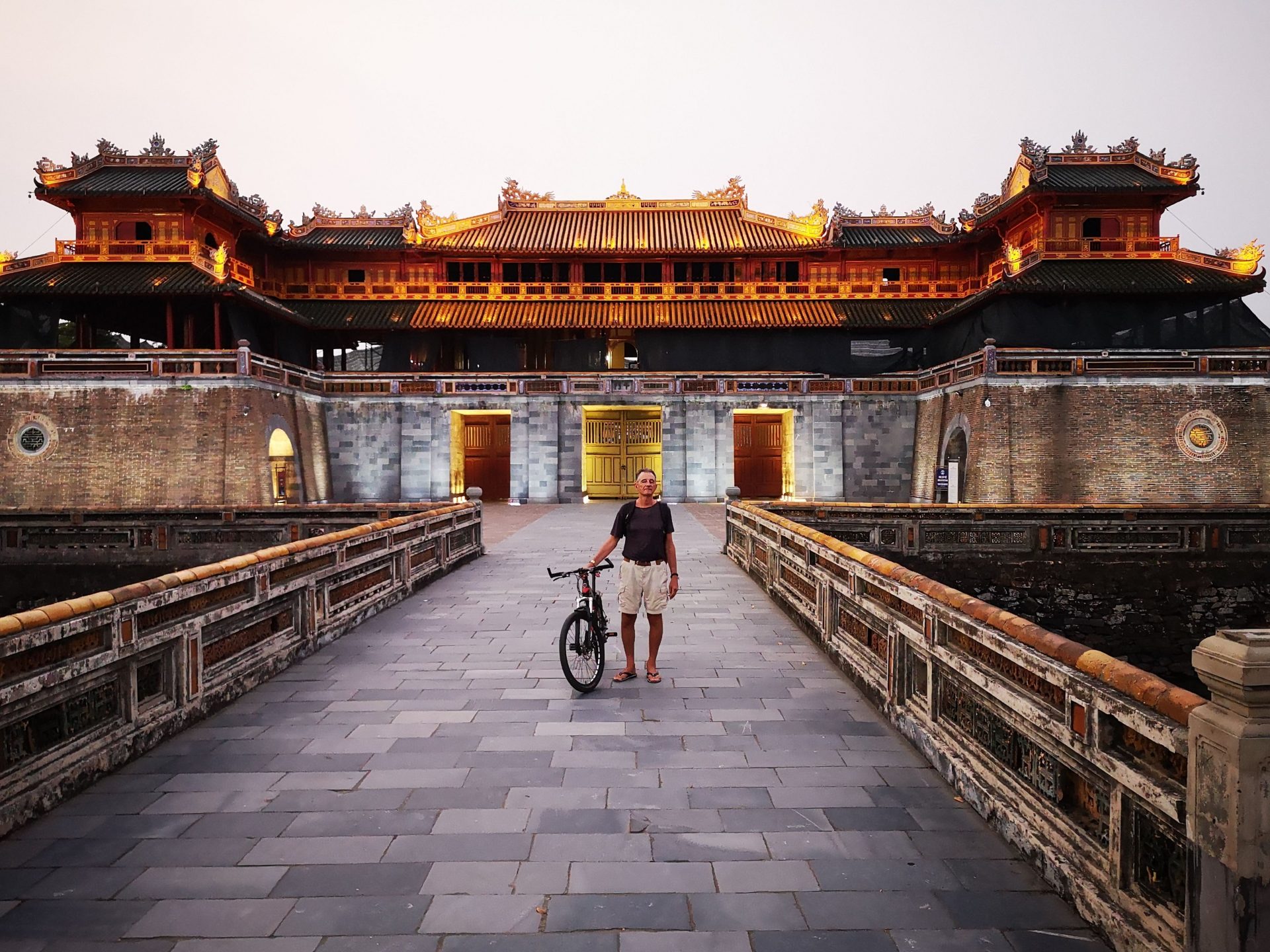
Hue was badly damaged and it’s population suffered terribly during the Vietnam war. It was fought over and alternately occupied by the Vietcong and the USA. Consequently, other than the citadel, we can’t find much architecture of any antiquity but there are some fine houses in the vicinity of our hotel and most streets are lined by mature trees. We realise that it’s an interesting town whose charms might require a little time and patience to appreciate. We spend three nights here and, despite the final couple of days being unusually overcast and rainy, we swim in the hotel pool and cycle to the citadel and one of the ancient pagodas. The citadel is vast and in various states of decay and restoration and I don’t really appreciate some of the more garish Chinese architecture. Next to it, in a small field, is a collection of old aircraft including a Russian Soviet built MIG fighter. I tell Jo that it’s similar to a MIG fighter jet that scared the hell out of me twenty five years ago, when it buzzed up close to the Pakistan International Airlines Boeing 747, in which I was a passenger, over war torn Afghanistan.
We cycle along the river to the Thien Mu Pagoda pagoda to see the very Austin Ambassador car in which Thich Quang Duc was driven to his suicide by fire in Saigon in 1963. We visited the memorial to Thich Quang Duc In Saigon a couple of weeks ago – see https://getrealtravel.com/asia/ho-chi-minh-city-vietnam/
Every evening in Hue we take a couple of the hotel’s bicycles over the bridge into town for a drink and dinner. It is testament to the character of Hue that these outings have been eventful. On our first evening, for reasons that I won’t bore you with, I lose Jo and my bicycle. I also end up at a riverside bar listening to a group of five older Vietnamese guys singing folk songs to the accompaniment of an acoustic guitar – these old boys have wonderful voices. I’m drinking a beer knowing that I have no money (Jo has all the cash). As I’m about to leave, I try to explain my predicament to the woman in charge. Her English is non existent and I must gesticulate and turn my pockets inside out. She clearly thinks I’m a deranged virus infected idiot and she’s not best pleased. Hubby is more understanding and tells me to return tomorrow and settle up . On my walk along the riverside back to the hotel I hear the screech of what I recognise to be an owl. Looking up I see, perched on the apex of a high roof, a big brown owl. I shine a torch to get a better look. He or she is unperturbed and continues to screech and rotate its head to scan the street.
The following night is similarly confusing. We have a fine dinner at an Italian restaurant called Risotto where the pasta is homemade and the risotto is superb. We are cycling home, when just before the bridge, I spot a bottle of the excellent Vietnamese Dalat red wine in the window of a small general store. I shout to Jo, stop!, but she’s already on the bridge and away. I buy the wine for £3 and step onto the bridge. Jo has gone. At that moment a Grab motorbike rider (Grab is the Asian equivalent of Uber) in his distinctive green uniform pulls up next to me. You want nice lady? He asks. No I’ve got one thank you. You want weed? He asks. No thank you not right now. I’ve lost my woman. You lose your wife? He asks in genuine concern. Yes, she was here a moment ago, now she gone. Oh, he says as he accelerates away over the bridge with me slowly following him. Half way across, I encounter Jo cycling back on the other side. She tells me that she stopped beyond the bridge when she realised I wasn’t there. She was standing over her bike with a puzzled look on her face when a Grab motorbike rider stopped and said, You lose your husband? Your husband on bicycle. He look for you! We have a good laugh over this little incident. Reunited again, we cycle along the riverside where we encounter, again, the fine screeching brown owl on its favourite rooftop perch.
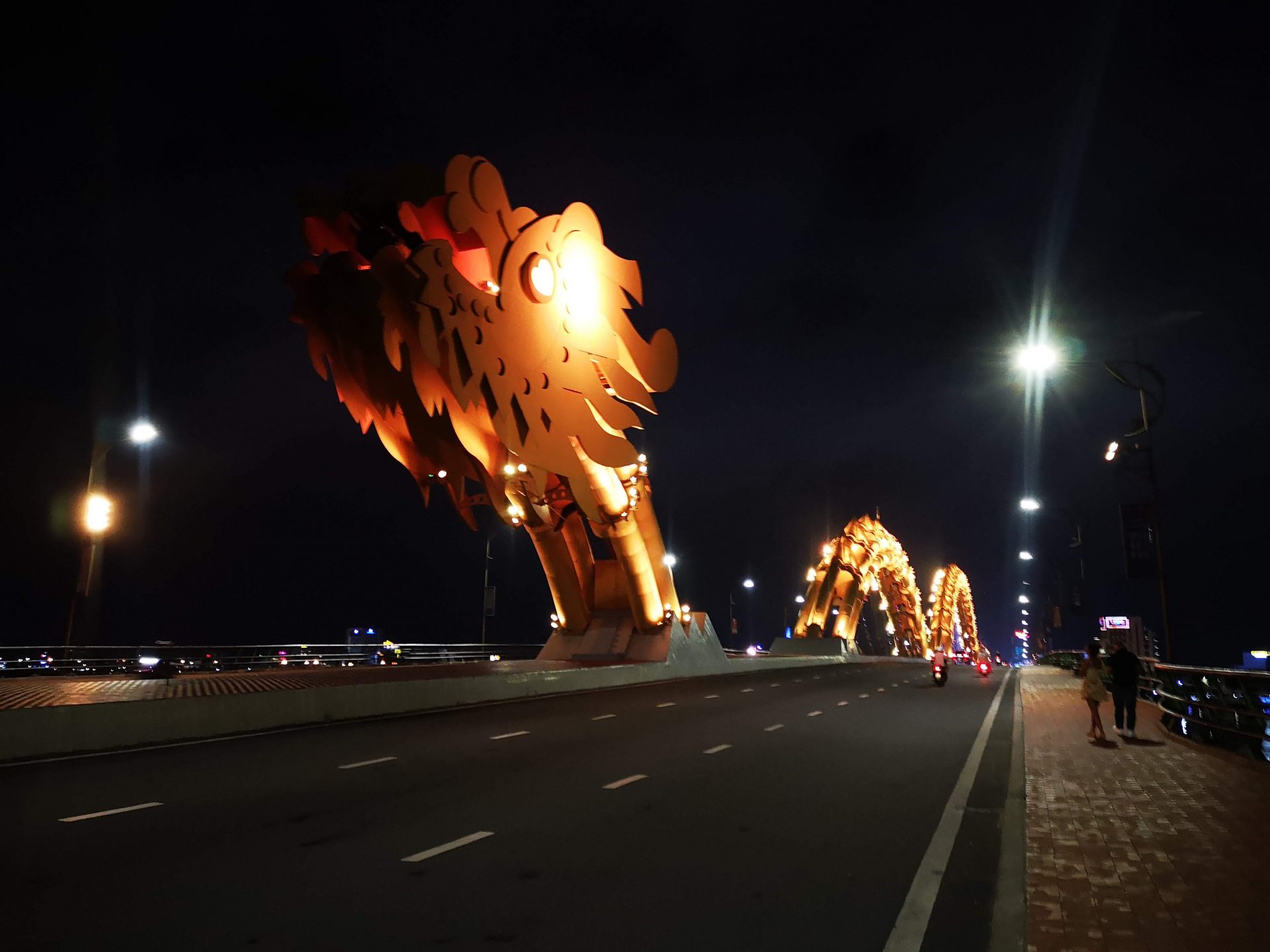
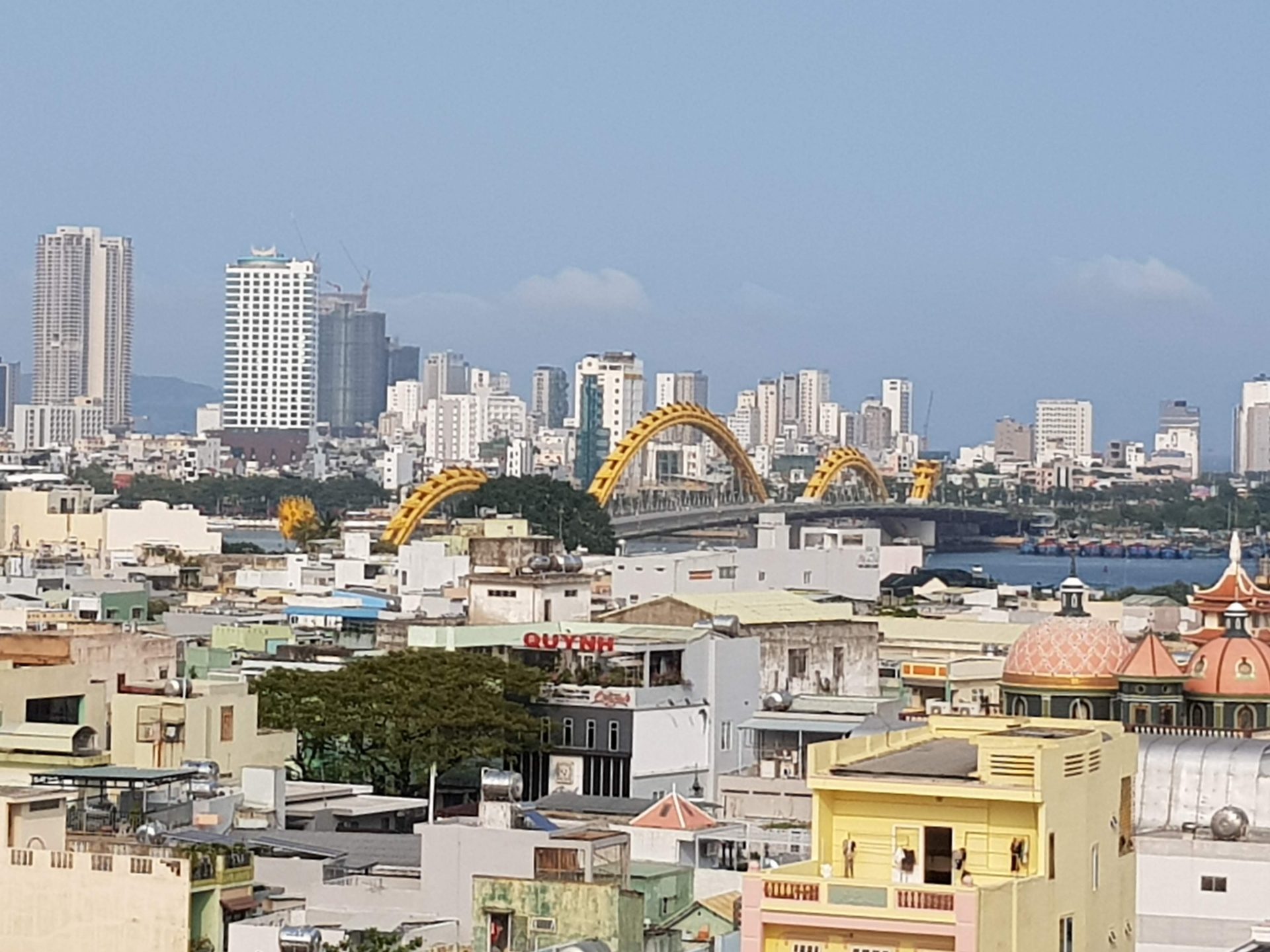
Jo and I are now having more protracted discussions about our predicament re’ the COVID-19 pandemic. Vietnam has closed its borders to citizens of many nations and Thailand may do the same. Airlines won’t fly empty planes, so our passage home will be uncertain. And we always face the possibility of infection or quarantine in Vietnam. Additionally, the UK’s circumstances, resulting from evolving attempts to mitigate the spread of the disease, are uncertain. Jo feels strongly that it is time to go home, to be closer to our children in these strange times. I agree with her. We must curtail this journey and return to England.
We spend a morning online finding and booking new return flights. Unfortunately we must write-off our existing flights from Hanoi to Bangkok and from Bangkok home. Tomorrow we will take the train back down the coast to Danang and from there fly to Bangkok for a connecting flight to Gatwick. We had planned to meet up with an old American colleague of mine, who lives in Hanoi – we haven’t seen each other for 34 years. I message him to say that sadly we cannot catch up now. But I’m resolved that one day soon, we will. We’d also arranged to stay with my brother Joe, for a few days at his home in Hua Hin, Thailand. He is having a house built just outside the town and I was looking forward to seeing it and him. I’m resolved that we’ll do that soon too. Jo and I agree that when the world returns to some form of normality, we will return to finish our journey to the north of Vietnam and Thailand.
Our last full day in Vietnam begins with the train journey back to Danang, and this time I make a point of enjoying the coastline. By 1pm we’re on China Beach with a beer and a coconut. The slightly low pressure has whipped up a bit of wind and the sea’s rolling waves are crashing onto the beach. We leap energetically in the waves for half an hour. We do some last minute shopping and pay a final visit to an ATM. After an fine dinner at a local seafood restaurant where the fish, shellfish and crustaceans are held in large tanks of aerated water, we walk a kilometre down the beach to the Apocalypse Now beach bar where Jo has three generous gins and tonic and I have three beers and a liberal shot of Jameson whiskey. We stay till time is called when the barman plays the bar’s valedictory closing song, “The End” by The Doors, the closing number of the film Apocalypse Now.
We walk home along the beach, slightly drunk, with The Doors song playing in the background.
This is the end
Beautiful friend
This is the end
My only friend
The end
Of our elaborate plans
The end………………………
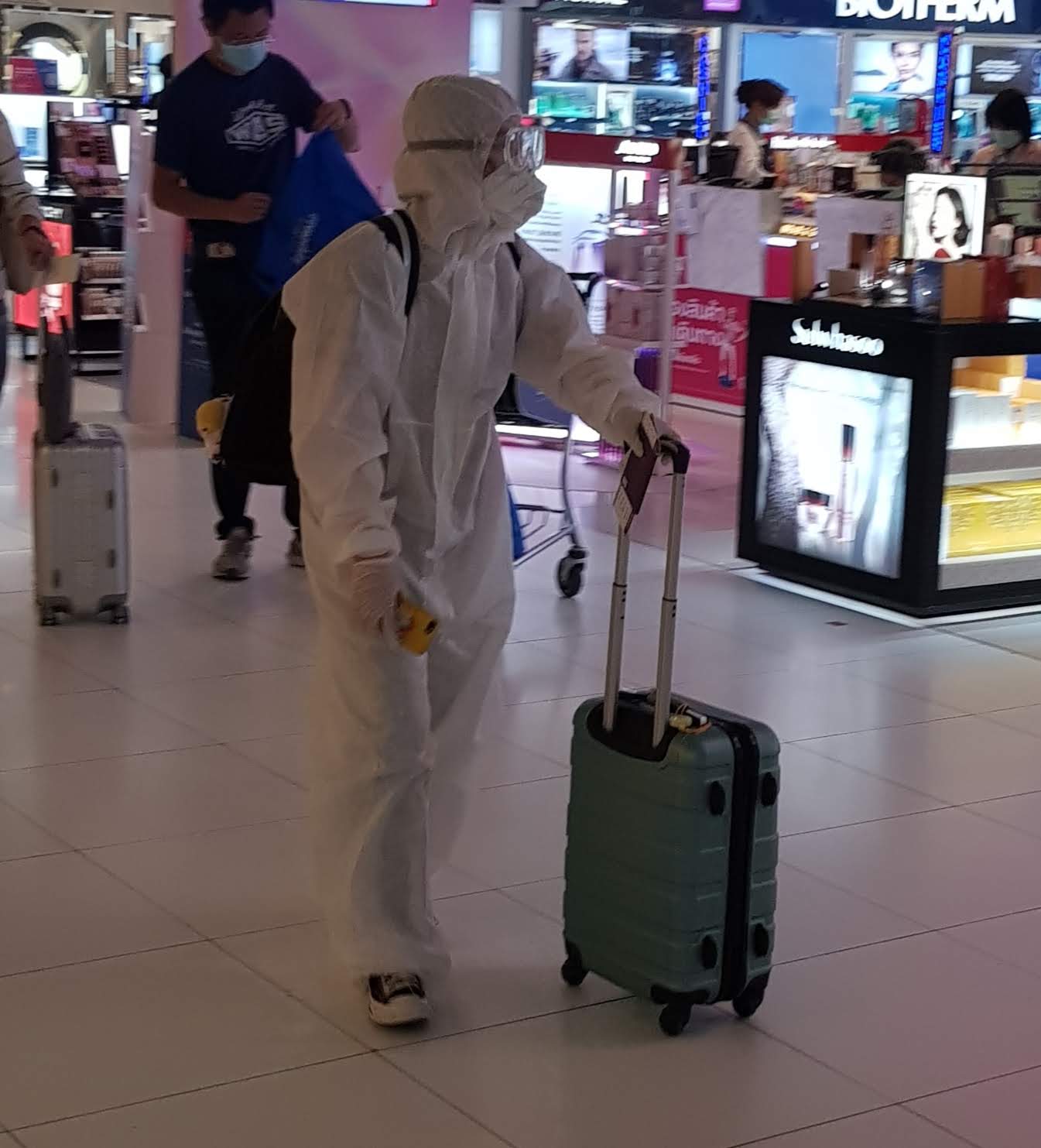
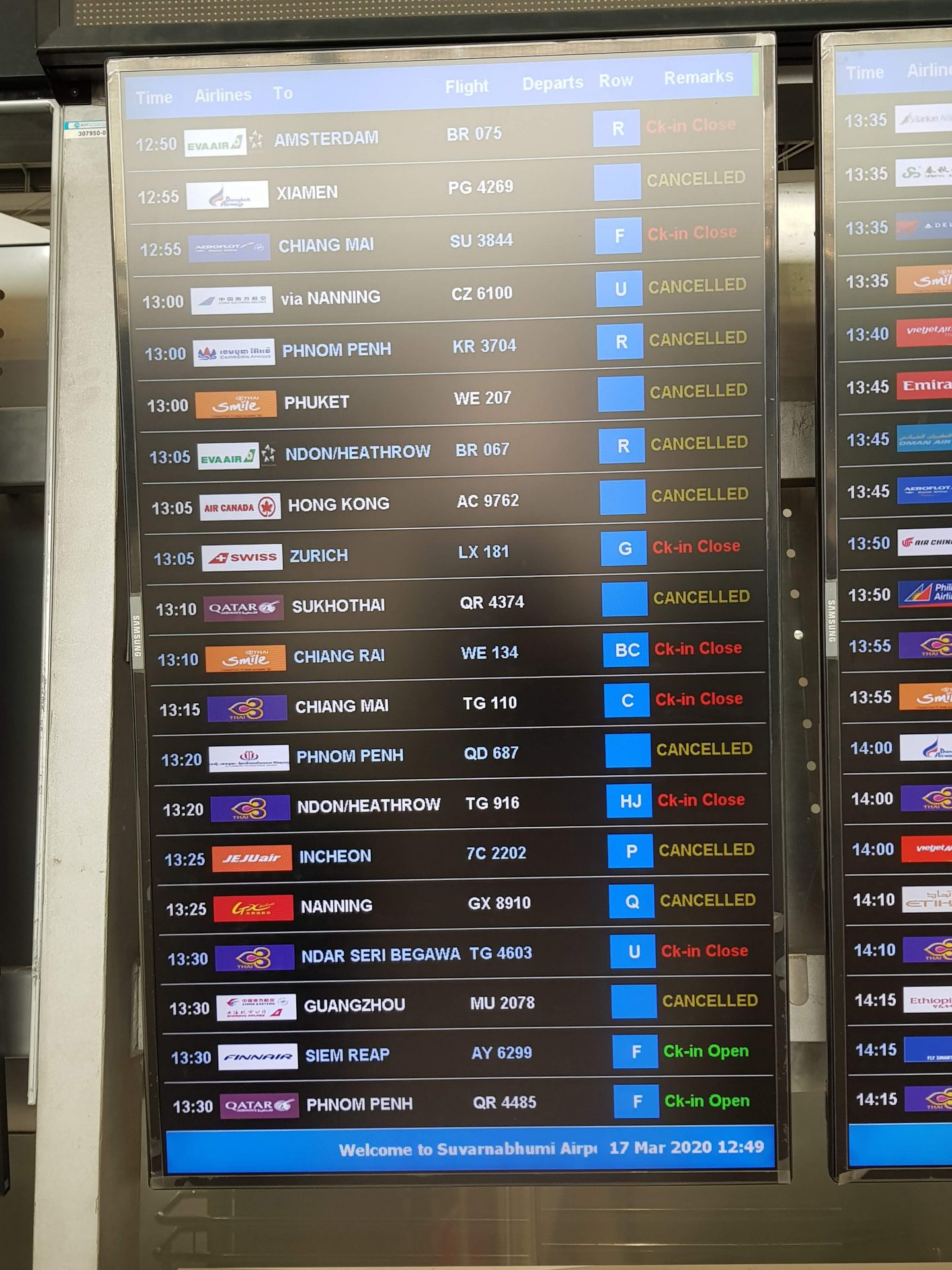
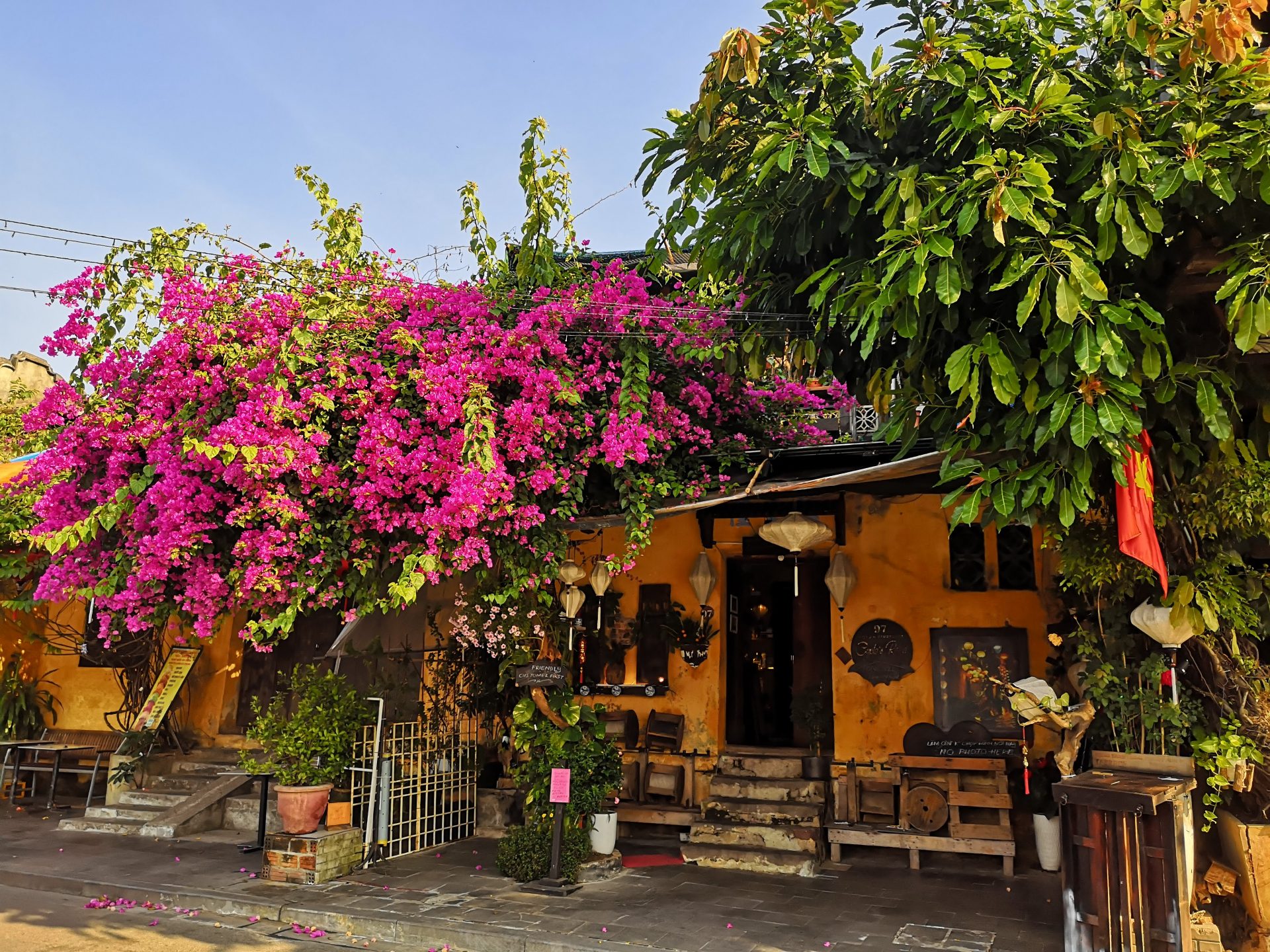
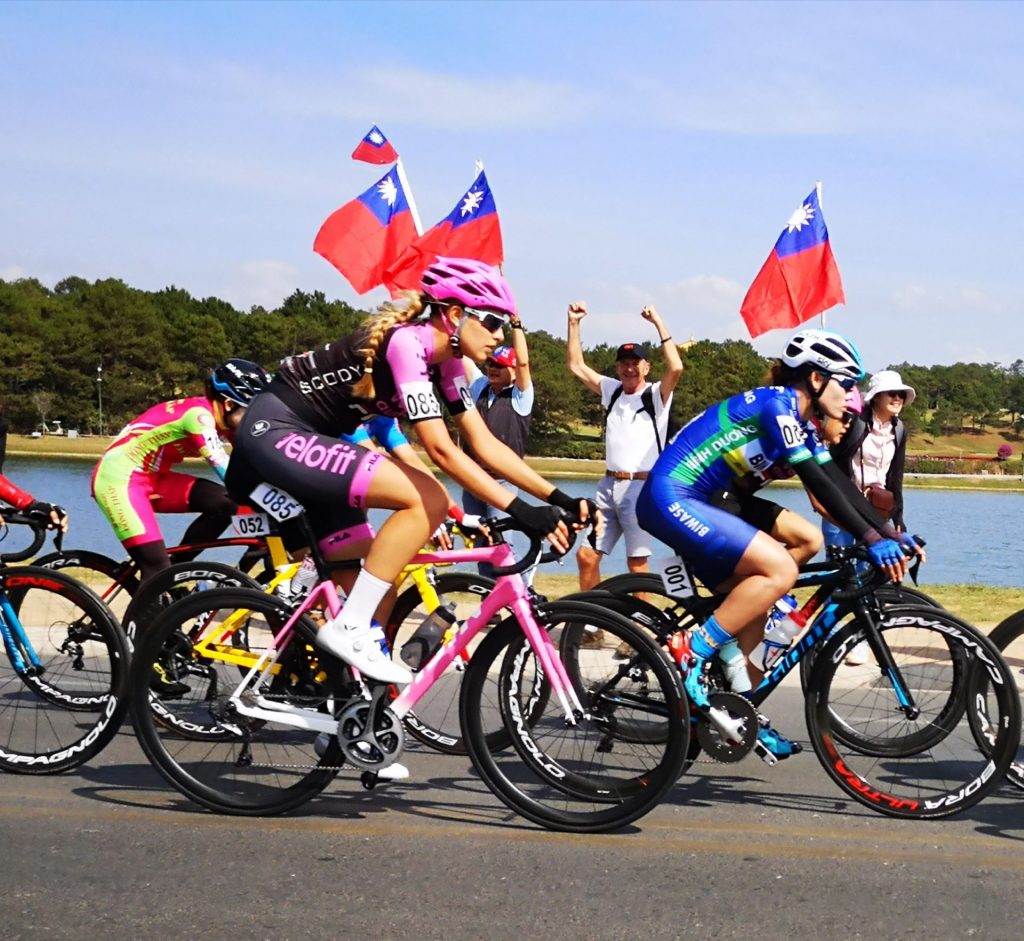

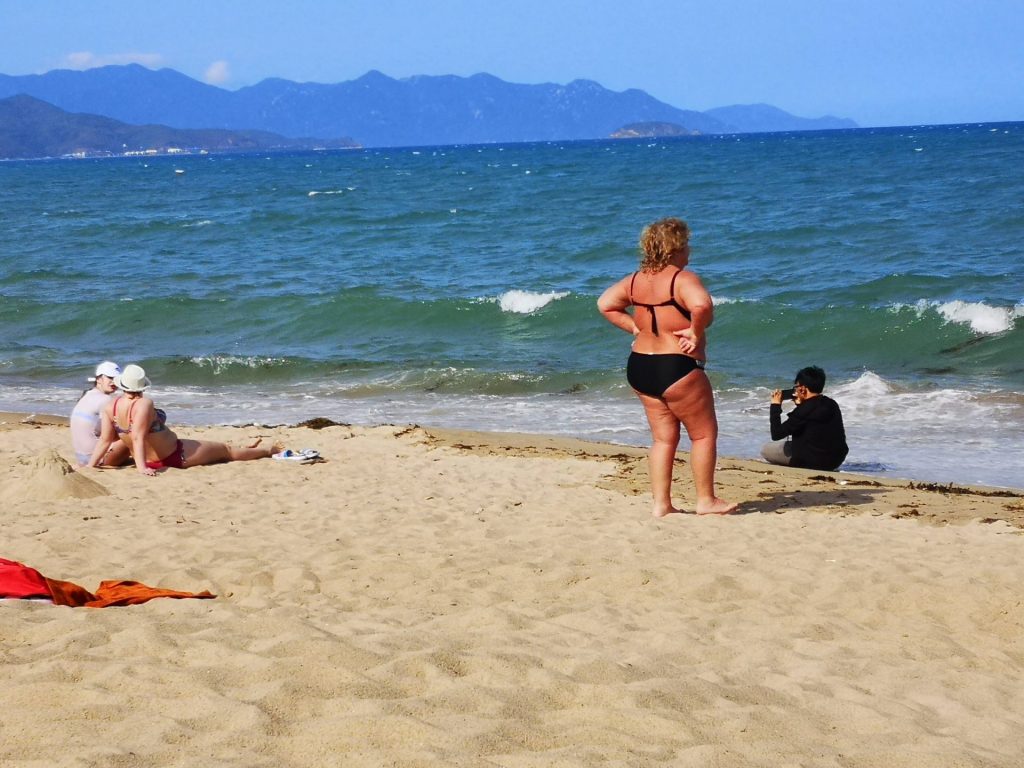

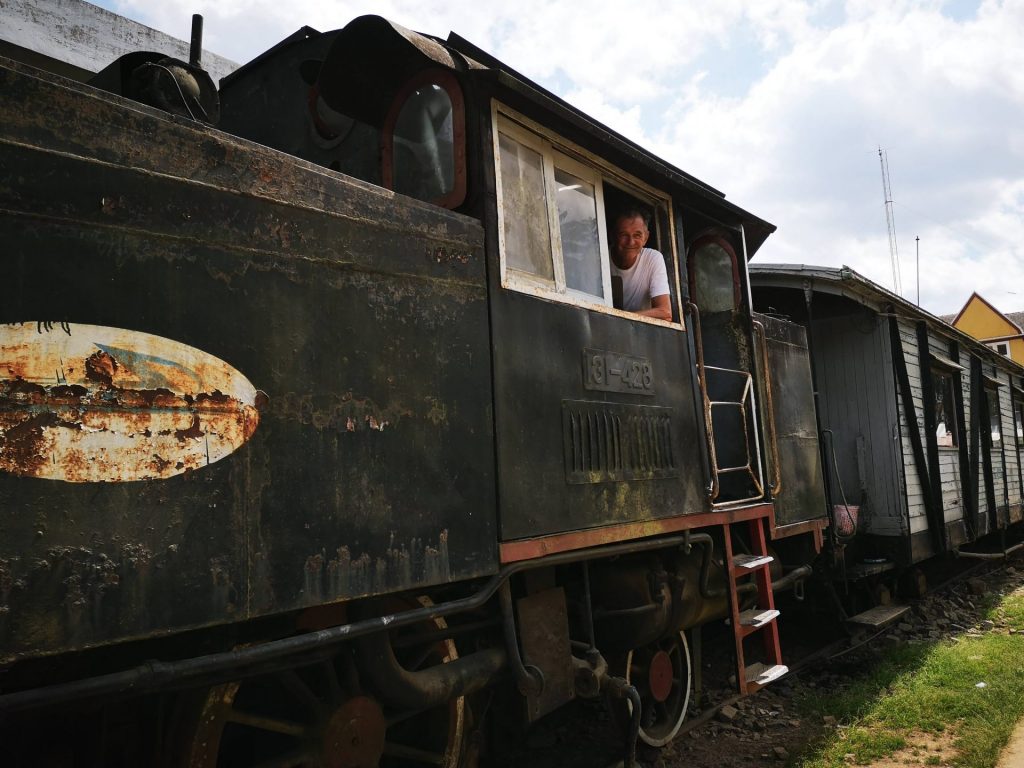
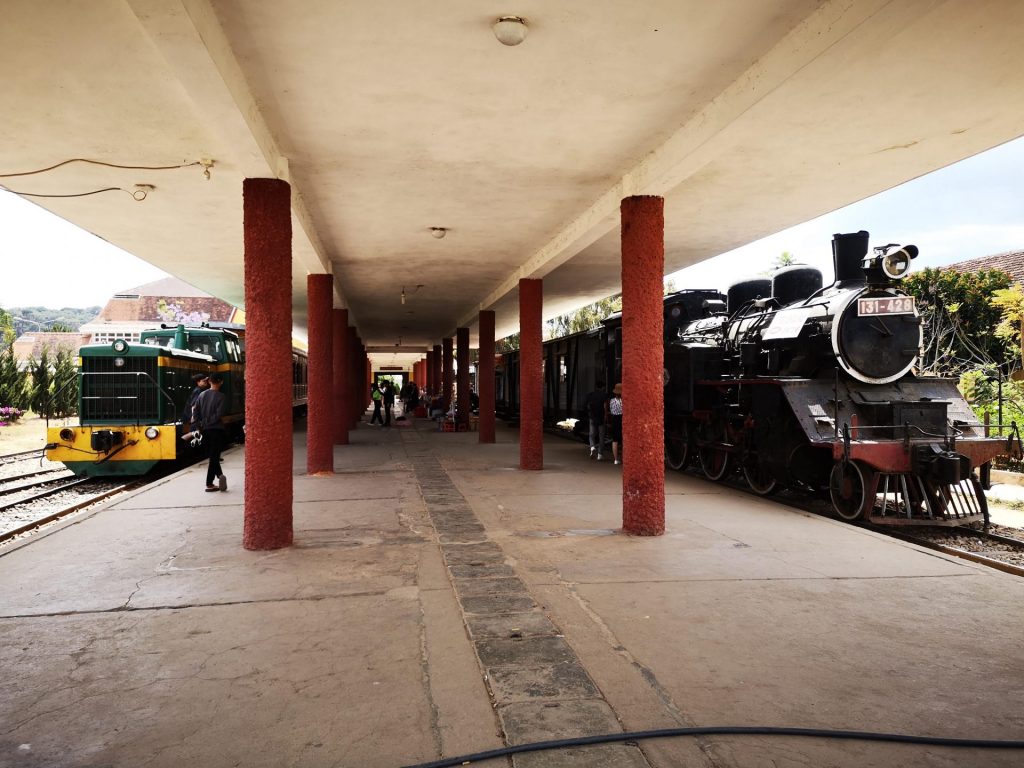


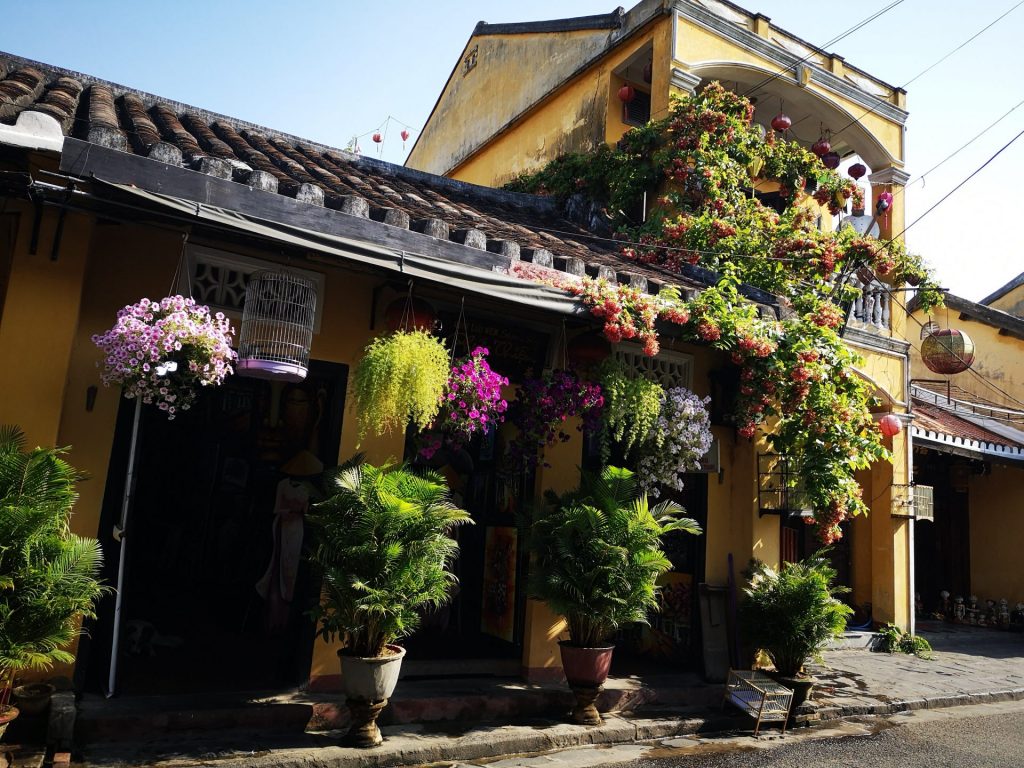
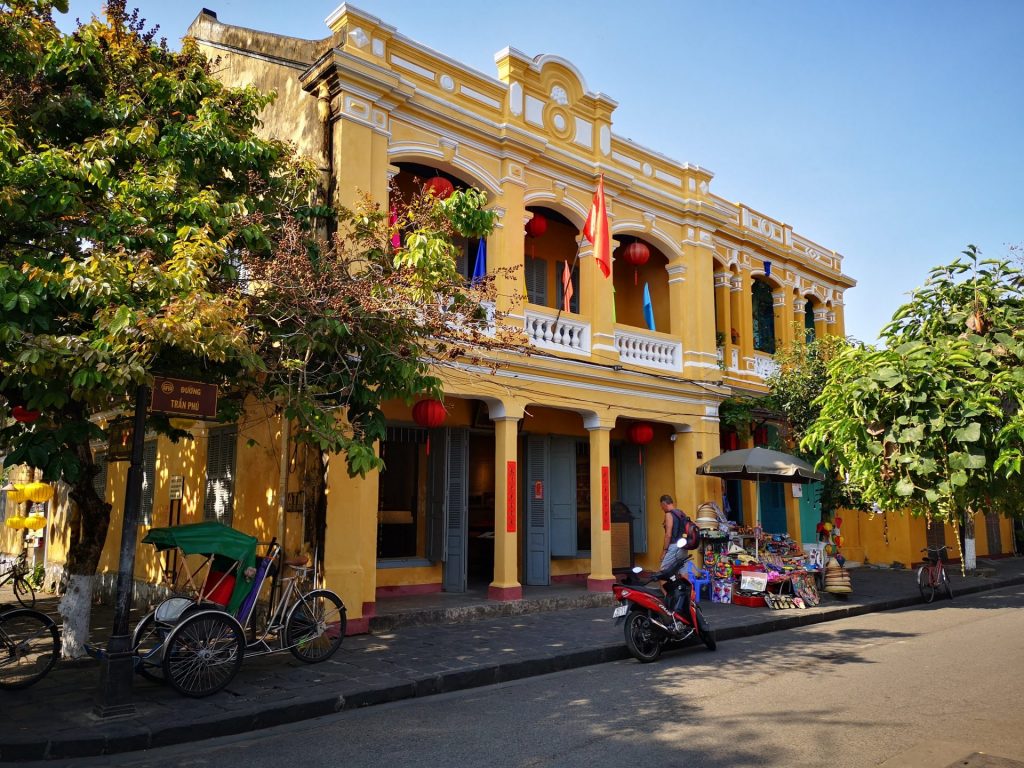
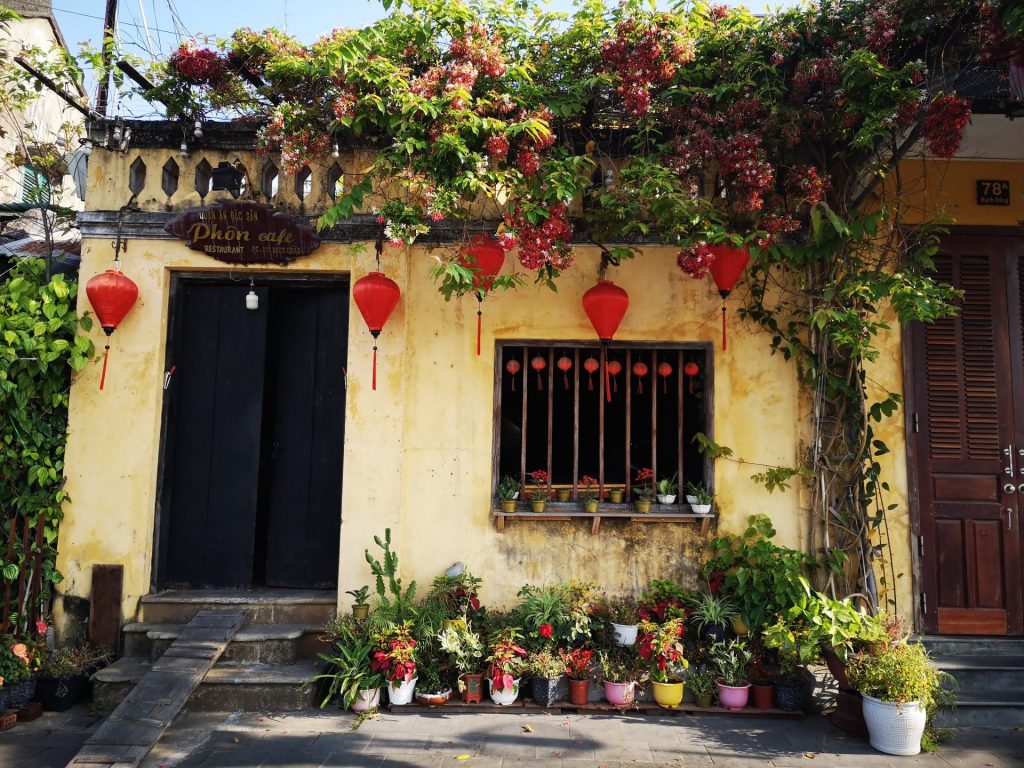


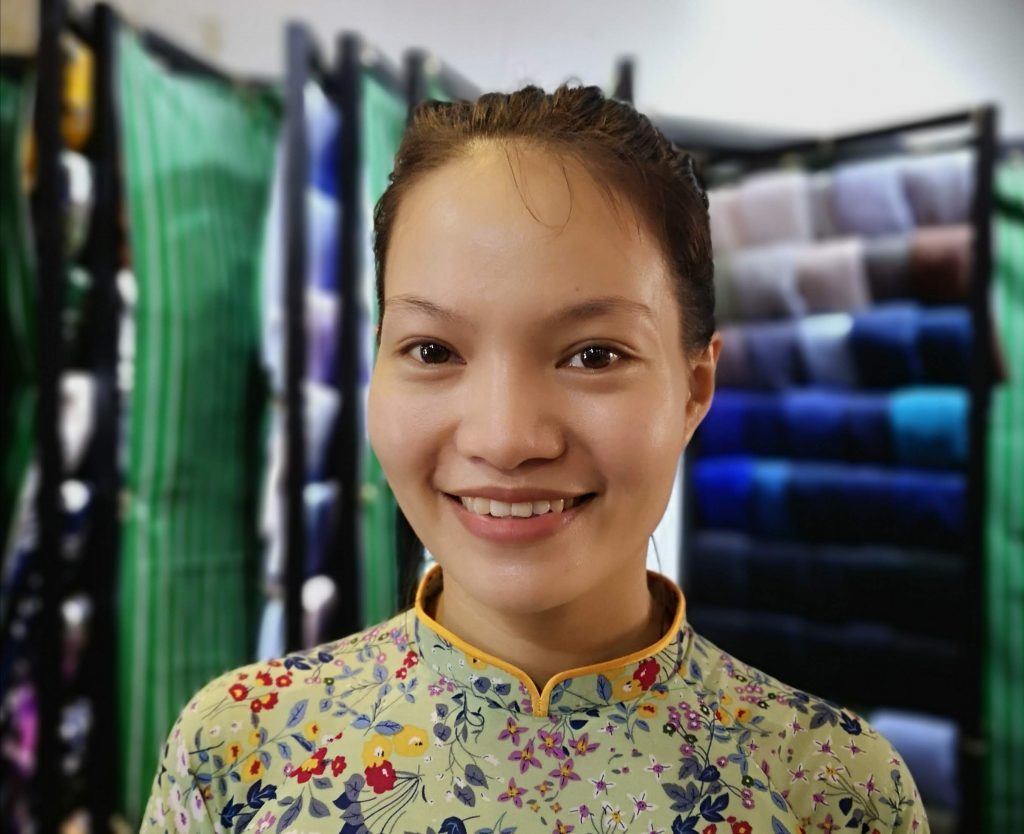




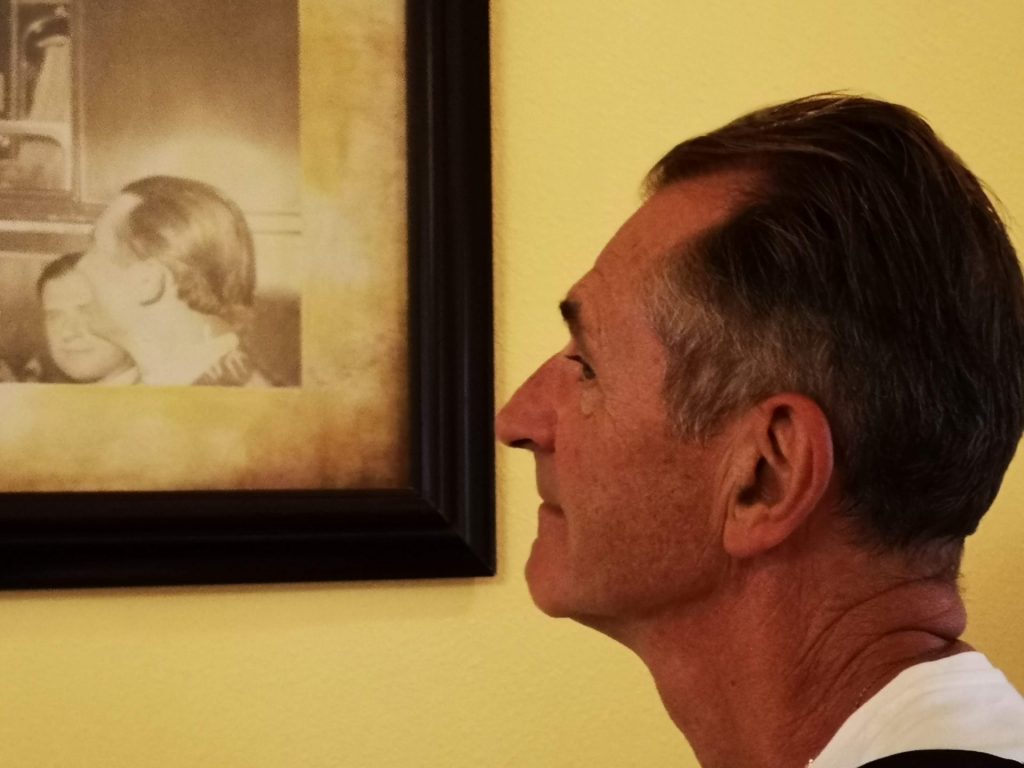

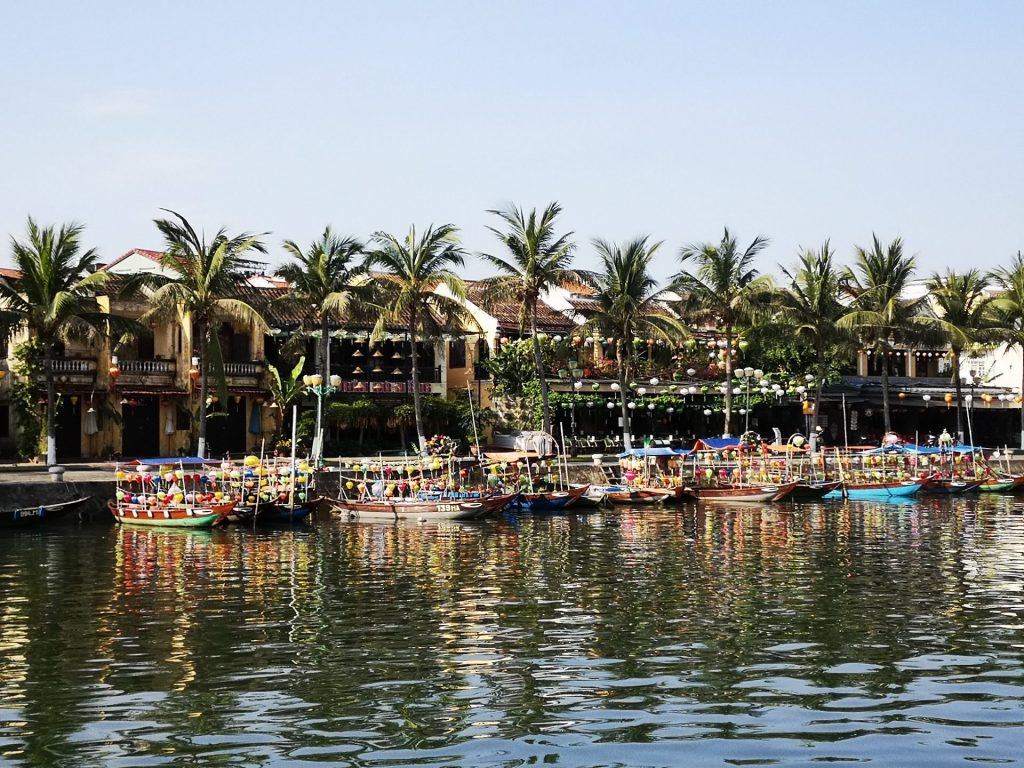

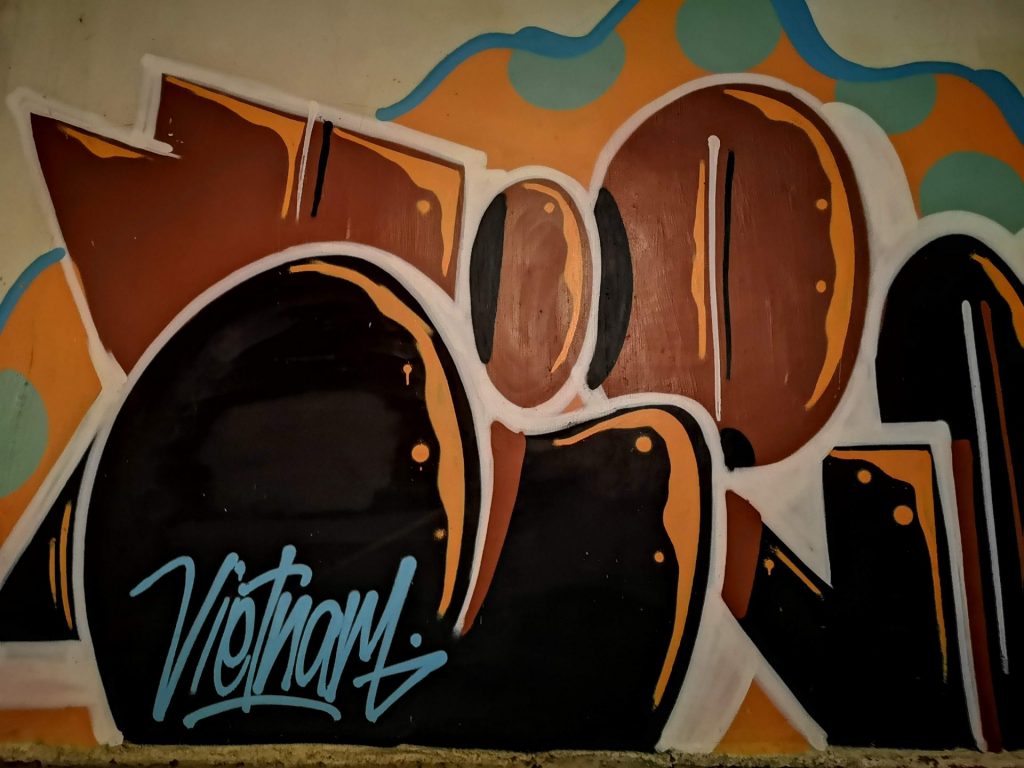


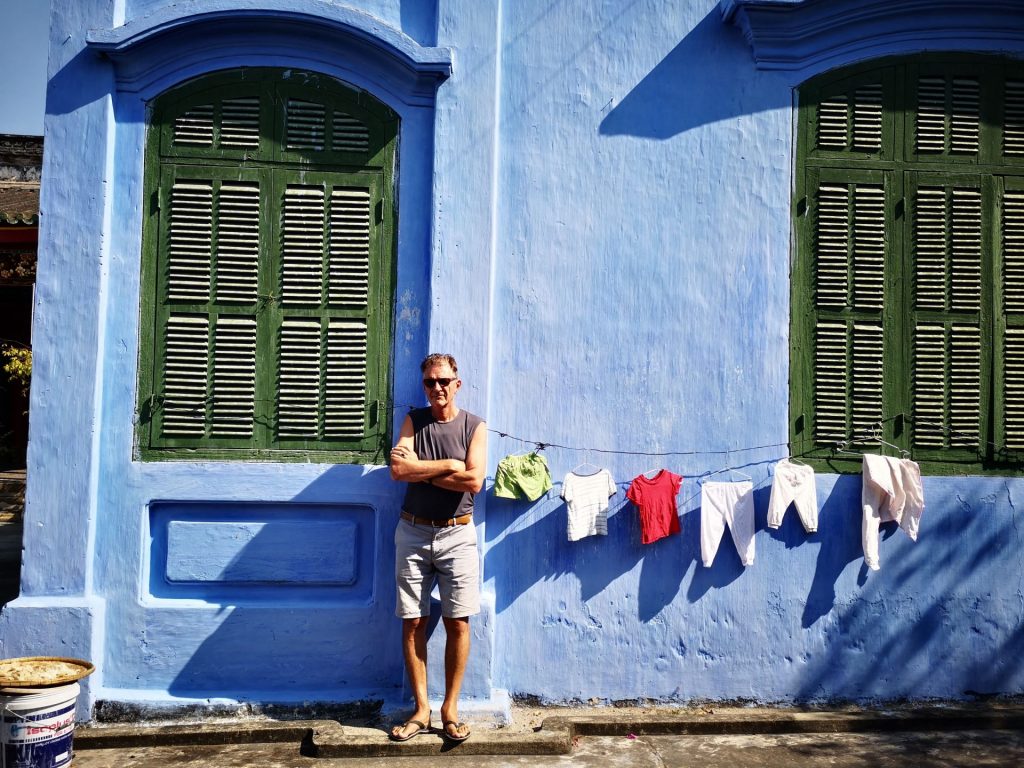

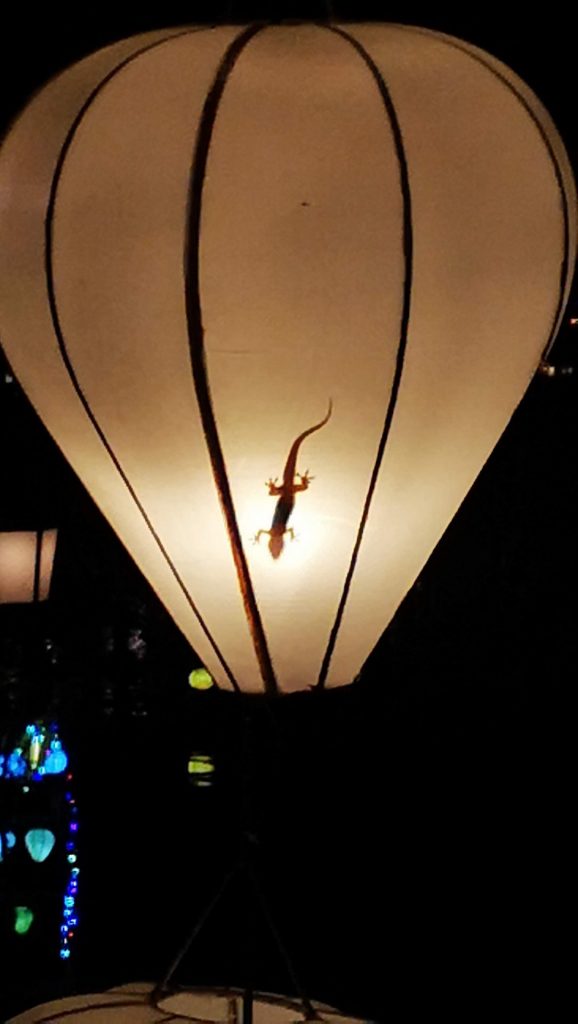


some truly interesting info , well written and loosely user friendly .
Excellent post! We are linking to this great post on our website. Keep up the great writing. Claudine Grannie Isador
Such a type of blog post will definitely hit to many followers. A good blog post and valuable for its information. Many thanks for sharing it up!
I really like what you posted. I really agree with what you wrote.